Reiterate calls for structural reforms to spur Africa’s growth Rewane: Nigeria’s economy can’t record significant growth without fixing electricity
www.thisdaylive.com

Reiterate calls for structural reforms to spur Africa’s growth Rewane: Nigeria’s economy can’t record significant growth without fixing electricity
www.thisdaylive.com
Deploys 60 top government officials to address grievances SGF urges region to wait for 2031 NSA Ribadu says Nigeria’s security improving Uba Sani maintains president good to northern region Arewa leaders insist despite giving Tinubu 5.6m votes, region neglected






L-R: Former Lagos State Commissioner for Tourism, Mr. Steve Ayorinde; President, National Association of Tour Operators (NATOP), Hajia Bolaji Mustapha; Mr. Ayodele Adebanjo, Director, Tourism Support Service, Federal Ministry of Arts, Culture, Tourism & Creative Economy; Former Chief Justice of the FCT, Justice (Dr) Ishaq Bello (rtd); Hon. Muktar Mohammed, Chairmsn House Committee on Tourism; Aare Abisoye Fagade, Director General, National Institute for Hospitality & Tourism (NIHOTOUR) and Mr. John Enemona, Representative of Chartered Institute of Hospitality, Tourism & Management of America, Abuja... at the inauguration of members and chairman of the Hospitality, Travel and Tourism Practitioners Disciplinary Tribunal (HTTPDT) at NIHOTOUR’s head office in Abuja on Tuesday.
Our engineers are now expatriates in UAE, other countries, says Dangote Group
Peter Uzoho
The federal government has commended the Dangote Petroleum Refinery for its outstanding engineering achievements and significant investment in developing young Nigerian talents.
The Minister of Industry, Trade and Investment, Dr Jumoke Oduwole, gave the praises during her official visit to the state-of-the-art facility at the Lekki Free Trade Zone, Lagos, according to a statement by Dangote Group.
Oduwole was also quoted to have lauded the refinery for its dual focus on world-class infrastructure and exceptional investment in human capital.
The minister expressed admiration for the vast scale of the physical infrastructure, describing it as “bricks, mortar, and pipelines of extraordinary ambition” but also for the calibre of talent operating it.”
“We are not just appreciating the scale of the infrastructure: the bricks, mortar, and pipelines,” the Minister said.
“We are equally impressed by the investment in human capital.
It is deeply inspiring to see young Nigerians, many of whom have never left the country, operating world-class equipment with remarkable skill and professionalism,” she stated.
Oduwole, a senior university
lecturer, highlighted the significance of such a development in the context of national capacity-building.
“As a lecturer myself, I take great pride in witnessing their excellence in engineering. It is nothing short of exceptional,” she added.
She also praised Africa’s richest man and the visionary behind the project, Aliko Dangote, for his continued commitment to industrial transformation in Nigeria.
“Listening to Alhaji Dangote speak about this project is always a source of inspiration. This is not just a refinery—it is a bold statement of what is possible. This is Lagos, Nigeria, and there is truly nowhere else in the world with a facility of this kind at this scale,” the minister added.
In his presentation to the minister, Vice President, Oil & Gas at Dangote Industries Limited, Mr. Edwin Devakumar, highlighted the world-class capabilities of the 650,000 barrels per day (bpd) Dangote Petroleum Refinery.
According to Devakumar, the refinery produces Euro-V quality petrol, diesel, jet fuel, and polypropylene, meeting 100 per cent of Nigeria’s domestic demand for refined petroleum products, with surplus available for export.
He emphasised that the refinery incorporates the latest technologies to ensure environmental compliance while delivering clean, globally
competitive fuels.
He noted that the refinery includes a fully self-sufficient marine terminal for crude oil offtake and product loading, as well as an integrated steam and power generation system with a 435 megawatts (MW) capacity—enough to supply the entire electricity demand of the Ibadan Electricity Distribution Company (IBEDC), which covers Oyo, Ogun, Osun, Kwara, and Ekiti States.
“We are one of the very few companies in the world to have executed both a petroleum refinery and a petrochemical complex directly as an EPC contractor.
“We sent engineers for overseas training and employed around 60,000 skilled Nigerians during construction, offering them valuable experience in various aspects of construction, testing, and commissioning,” he said.
Devakumar added that many of the Nigerian engineers, technicians, and others trained by the company were now working as expatriates not just across Africa, but as far afield as the United Arab Emirates (UAE), contributing to Nigeria’s foreign remittance inflow.
The statement recalled that Dangote Petroleum Refinery and Dangote Fertiliser Limited have been widely commended for their commitment to hiring and nurturing Nigerian engineers. Most recently, the Nigerian Content Development and Monitoring Board (NCDMB), led by its Executive Secretary, Felix Ogbe, had praised the company for its efforts in developing young engineering talents.
Nume Ekeghe and Kayode Tokede
The Transnational Corporation Plc yesterday announced its half-year (H1) ended Jun 30, 2025, unaudited results, showing impressive yearon-year growth and rewarding shareholders with a robust interim dividend payout.
Nigeria’s leading listed conglomerate in the period under review announced N279.7 billion revenue, which was about a 59 per cent increase over the N175.4 billion recorded in the corresponding
National Drug Law Enforcement Agency (NDLEA) has conducted a public auction of forfeited houses, which were either acquired through proceeds of drug trafficking or used as instruments for committing the crime.
The exercise, which took place on Tuesday at the agency’s National Headquarters in Abuja, had pre-qualified auctioneers, bidders, representatives of civil society organisations, the media, and other government agencies in attendance.
Speaking at the event, Chairman/ Chief Executive of NDLEA, Brig. Gen. Buba Marwa (Rtd.), said the exercise was part of the agency’s
strategic effort to dismantle drug trafficking networks by depriving offenders both liberty and illicit wealth in strict compliance with legal frameworks and due process.
Represented by NDLEA’s Secretary, Mr. Shadrack Haruna, Marwa reaffirmed the agency’s resolve to pursue drug offenders not only through prosecution but also by targeting all assets acquired through proceeds of crime. He said, “This auction is part of our broader commitment to transparency and justice. Beyond prosecuting drug offenders, we are committed to ensuring that the financial incentives that drive these crimes are neutralized through legal forfeiture.
“This serves as both punishment
and deterrence. When drug traffickers know they stand to lose everything, including their ill-gotten assets, it sends a stronger message than imprisonment alone.”
The auction involved forfeited eight properties across Lagos, Kano, Ondo, and Ogun. Two of the houses located in Lekki and Ikorodu areas of Lagos were stepped down from the process due to notices of appeal received after the processes had begun.
Six other properties were auctioned to pre-qualified bidders, with only two sold at over N139 million following successful bids above their reserved prices. Others either failed to receive any bids or attracted offers below the benchmark.
period, while profit before tax moved from N70.9 billion in H1 2024, to N85.7 billion in the review period, which was about a 21 per cent increase.
The performance saw an increased gross profit margin of 47per cent, despite economic headwinds.
In line with its commitment to delivering value to shareholders, the company declared an interim dividend of N4.064 billion, representing a 40 kobo per ordinary share, subject to applicable withholding tax.
Despite continuing economic headwinds, Nigeria’s bellwether stock, with a portfolio that spans power, resources, and hospitality continues to deliver for shareholders – and make significant investments in Nigerian infrastructure.
Notable highlights of the period included the launch of the Transcorp Centre in Abuja, Nigeria’s stateof-the-art convention and events centre, which has already hosted international leaders and major regional events.
Commenting on the H1 2025 results, Chairman, Transnational Corporation, Mr. Tony Elumelu, in a statement said, “Delivering on our impact-driven, value-creating mission, we continue to advance strategic investments across key sectors in Nigeria.
“In power, Transcorp Power and Transafam Power increasingly innovate to improve lives, transforming Nigeria. In hospitality, we continue to delight our clients and redefine our sector, not least with the opening in Abuja of the Transcorp
Centre, Nigeria’s superlative events centre. Our growth demonstrates the resilience and strength of our diversified business model.
“We remain dedicated to achieving our strategic vision, rewarding our valued shareholders, and driving the sustainable transformation of Nigeria’s economy.”
President/Group Chief Executive Officer, Owen Omogiafo, was also quoted to have said, “The Q2 2025 financial performance reflects our firm commitment to operational excellence and the resilience inherent in our corporate strategy, which has further enhanced our capacity to effectively navigate challenges.
“This adaptability has enabled us to thrive within a dynamic business landscape while consistently delivering value to our stakeholders.
blessing ibunge in Port Harcourt
A coalition under the aegis of the Citizens Whistleblowers Coalition (CWC) has urged President Bola Tinubu to order an investigation into the alleged unfair business practices of Mediterranean Shipping Company (MSC).
The group that made the call in a petition to Tinubu said the investigation should center on MSC practices against Nigerian shippers, including alleged unfair
container deposit charges, illegal detention of shipments, and unfair demurrage charges.
The coalition, in the petition signed by its Programme Officer, Nafiu Ibrahim; Officer Communication and Liaison, Ella Susan and Officer, Socio-Economic Rights, Dodeye Arikpo, appealed to the President to probe MSC for alleged economic sabotage and judicial subversion.
The stakeholders said they resorted to writing the petition after MSC allegedly refused to
honour the National Assembly’s invitations, disregarded the Minister of Blue Economy’s memo on container deposit charges. The coalition insisted on an exclusive jurisdiction clause that required all disputes in Nigeria to be litigated in London. They further insisted that MSC’s alleged unfair business practices directly impacted the Nigerian economy and had led to high costs of goods and services being passed on to the poor masses by importers.
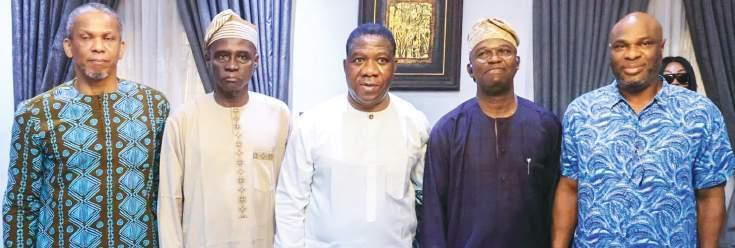
L-R: Vice Chairman, Senate Committee on Legislative Compliance, Senator Ede Dafinone; Chief Whip of the Senate, Senator Tahir Monguno; Leader of the Senate, Senator Opeyemi Bamidele; Chairman, Senate Committee on Banking, Insurance and Other Financial Institutions, Senator Adetokunbo Abiru and Chairman, Senate Committee on Local Content, Senator Thomas Joel-Onowakpo during a praise-and-worship session organised to commemorate Bamidele’s 62nd anniversary at his residence in Asokoro, Abuja …. yesterday
sunday aborisade in Abuja
The Senate has issued a three-week ultimatum to the Nigerian National Petroleum Company Limited (NNPCL) to provide comprehensive responses to audit queries involving a staggering N210 trillion discrepancies found in the company’s audited financial statements from 2017 to 2023.
Senate Public Account Committee (SPAC), through its Chairman, Senator Ahmed Aliyu (Nasarawa West), gave the deadline after an investigative hearing involving
NNPCL led by the recently appointed Group Chief Executive Officer, Engr. Bayo Ojulari.
Ojulari, who had served just over 100 days in office, appeared before the committee after previously failing to honour its invitations.
He apologised for his absence and requested four weeks to respond to the 19 audit queries, citing the complexity and technicality of the issues involved.
The committee granted him three weeks, which Ojulari accepted as sufficient.
Aliyu clarified during the session that the funds in question were neither declared missing nor stolen, but remained unaccounted for in terms of supporting documentation and reconciliation.
He emphasised that the N210 trillion consisted of N103 trillion in liabilities and N107 trillion in assets that required clear explanations.
Ojulari explained that he needed time to thoroughly understand the queries and would engage external auditors and relevant departments to ensure the responses were accurate
and well-substantiated.
He stated that his understanding of the issues had evolved significantly after listening to the committee’s breakdown, and committed to assembling a team to reconcile all outstanding records.
The queries stemmed from findings by Auditor-General of the Federation, who reviewed NNPCL’s audited financial statements covering a seven-year period.
Wadada stressed that the committee’s work was in line with its constitutional mandate and was based
deji elumoye in Abuja
The federal government, yesterday, unveiled a 10-year Strategic Action Plan (2026–2035) to transform its agricultural sector, with Vice President Kashim Shettima declaring that the youth-led innovation will be central to the country’s food systems transition.
The plan is part of Nigeria’s national strategy to implement the Comprehensive Africa Agricultural Development Programme (CAADP) Kampala Declaration (2026–2036), adopted by African Heads of State to strengthen food and nutrition security across the continent.
Speaking at a high-level dialogue between African youth agri-food entrepreneurs and African leaders during the United Nations Food Systems Summit Stocktake (UNFSS+4)
in Addis Ababa, Shettima emphasised the importance of investing in young people to drive innovation and resilience across food systems.
He stated, “A nation that is prepared for the future is not known by the promises it makes but by the place it gives to its youth in shaping those promises.
“To see African youths leading the charge in this essential sector speaks more eloquently than any speech.”
He explained that Nigeria had already inaugurated an Agricultural Sector Working Group and a Technical Committee to coordinate national implementation of the Kampala Declaration and develop the 10-Year Strategic Action Plan.
According to him, the plan will align national and subnational priorities, promote public-private
partnerships, and embed strong youth engagement at every level.
The vice president also stated that the federal government had recapitalised the Bank of Agriculture with N1.5 trillion ($1 billion) to support the Youth Agricultural Revolution in Nigeria, providing loans of up to N1 million to young farmers and agri-groups across the country.
“This is not charity. It is strategic inclusion. It is resilience engineered into policy,” Shettima said.
He listed several ongoing initiatives, including Nigeria’s collaboration with the Netherlands, CGIAR, and IITA under the Youth in Agribusiness Initiative, which is targeting 10,000 youth, with 40–50 per cent of them women, across innovative hubs in horticulture, poultry, aquaculture, and cassava processing.
segun awofadeji in Bauchi
A new UNICEF Nigeria Country Representative, Ms. Wafaa Saeed Abdelatef, has been appointed.
This is contained in a statement by Susan Akila, Communication Specialist, UNICEF Nigeria which was made available to journalists on Tuesday in Bauchi. Prior to her appointment, Wafaa Saeed served as the UNICEF Representative in Somalia, where she achieved significant successes in advancing children’s rights and
well-being within a complex and challenging environment.
With over 20 years of dedicated service in international humanitarian and development work, Wafaa Saeed brings a wealth of experience and leadership to Nigeria’s efforts to improve the lives of children and communities across the country.
Her extensive career includes senior roles with the United Nations—most notably with OCHA, UNICEF, and WFP—in diverse settings such as Sudan, Indonesia, Pakistan, Syria, and Ethiopia.
Her extensive career includes senior roles with the United Nations—most notably with OCHA, UNICEF, and WFP—in diverse settings such as Sudan, Indonesia, Pakistan, Syria, and Ethiopia.
She has also held leadership positions at the global level with OCHA in New York and Geneva.
Wafaa Saeed’s professional journey began in Sudan, where she worked with the private sector, academia, and non-governmental organisations on initiatives focused on displaced populations and environmental conservation.
Shettima also cited investments in mechanisation, greenhouse expansion, and irrigation systems, along with the $1.1 billion Green Imperative Project with Brazil, which is enhancing year-round agricultural productivity and value chain efficiency.
He said, “We launched the first 2,000 tractors in a $70-million investment, targeting over 550,000 hectares of land and reaching more than 550,000 farming households. In partnership with John Deere, we are deploying 10,000 tractors over five years.”
solely on the audit reports, not on politically motivated allegations or suggestions from other arms of government.
He stated that once NNPCL’s written response was submitted, Ojulari and other senior officials would be invited to appear before the committee for another hearing and further clarifications.
Some of the figures flagged in the audit report included N600 billion in retention fees and other large entries for legal and audit services, none of which had corresponding contracts or documentation.
The committee raised additional concerns over conflicting financial outcomes between NNPCL and its subsidiary, NAPIMS.
While NAPIMS, reportedly, declared N9 trillion in profit between 2017 and 2021, NNPCL posted a N16 billion loss during the same period, raising questions about consolidation and financial transparency.
Lawmakers present during the session expressed the gravity of the audit queries but also showed faith in the GCEO’s ability to clear the air.
Senator Victor Umeh (Anambra Central) welcomed Ojulari and stressed the need for transparency. Umeh stated that NNPCL held the key to Nigeria’s economic fortune.
Senator Babangida Hussaini (Jigawa North West) reiterated the importance of continuity in governance and called on NNPCL to confront the issues head-on.
Senator Tony Nwoye (Anambra North) cautioned against hasty
conclusions, stating that the audit report itself may contain inaccuracies and that NNPCL deserves a fair hearing.
The committee’s move, according to the lawmakers, came amid broader national efforts to strengthen public accountability and fiscal discipline, in line with President Bola Tinubu’s Renewed Hope Agenda. They stated that the push was particularly timely given NNPCL’s transformation into a commercial entity under the Petroleum Industry Act (PIA) and its plans to eventually goThepublic.senate warned that a lack of clarity in financial reporting could undermine investor confidence and Nigeria’s oil sector credibility.
In a show of seriousness, representatives from key anti-corruption and intelligence agencies—including Economic and Financial Crimes Commission (EFCC), Independent Corrupt Practices Commission (ICPC), Nigerian Financial Intelligence Unit (NFIU), and Department of State Services (DSS), were present at the hearing.
As the three-week countdown begins, all eyes are now on NNPCL. The company is expected to submit a detailed, well-reconciled written report addressing each of the 19 audit queries.
The outcome of this probe would shape not just NNPCL’s corporate future, but also the Nigerian government’s credibility in enforcing accountability in its most critical revenue-generating sector.
Nigerian Association of Chambers of Commerce, Industry, Mines and Agriculture (NACCIMA) has called for the support of the diplomatic community in Nigeria’s bid for economic transformation.
National President of NACCIMA, Dr. Jani Ibrahim, made the call in his keynote address at NACCIMA’s inaugural Economic Diplomacy Dialogue held on Tuesday in Abuja.
Ibrahim recognised the importance of collaboration with foreign economies to boost the country’s private sector and improve Nigeria’s drive towards economic transformation.
The event, which brought together ambassadors, govern-
ment ministers, and business leaders to explore collaborative strategies aimed at strengthening trade, investment, and industrial cooperation, was organised by NACCIMA, in conjunction with the Ministry of Foreign Affairs.
The NACCIMA president described the initiative as a “new dawn in strategic partnership” between Nigeria’s organised private sector and international partners.
He said, “Today’s dialogue is designed to foster deeper engagement between the diplomatic community and Nigeria’s private sector to promote trade, investment, industrial cooperation, and inclusive economic growth.
“NACCIMA seeks to leverage this platform to align with the Federal Government’s 8-Point
Agenda and the ‘Nigeria First’ principle, thereby amplifying our collective efforts toward realising a $1 trillion economy.” Ibrahim highlighted series of policy proposals, including the establishment of a Private SectorDiplomatic Dialogue Framework, the creation of joint working groups on trade and the digital economy, and impact monitoring systems to track measurable progress.
He disclosed that NACCIMA would host an Investment Summit, December 2-3, 2025, to explore capital flows into key growth sectors. In his remarks, Minister of Foreign Affairs, Ambassador Yusuf Tuggar, underscored the federal government’s diplomatic strategy in support of private-sector growth.


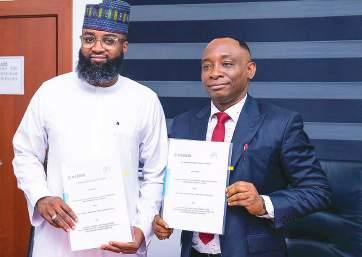
L-R: Executive Vice Chairman/CEO of National Agency for Science and Engineering Infrastructure (NASENI), Mr. Khalil Suleiman Halilu and the Director-General, Bureau of Public Procurement (BPP), Dr. Adebowale Adedokun during the signing of MoU to align efforts and operationalise the ‘Nigeria First Policy’ on government procurements at BPP headquarters in Abuja on Monday
Onyebuchi Ezigbo in Abuja
The Coordinating Minister of Health and Social Welfare Prof. Ali Mohammad Pate, has said that federal government is making huge investment to improve healthcare facilities in the country including neurological healthcare management.
Pate who was represented by Dr. Tunde Ojo at the First Africa Neurological Health Summit jointly organised by the Brain & Spine Foundation and the Federal Ministry of Health and Social Welfare on Tuesday in Abuja said there are plans to integrate mental health and neurological indicators into the National Information Management System
“Through the swap, we are ensuring that the investment in neurological and mental health care is integrated within broader health systems, strengthening efforts at ensuring coherence, efficiency, accountability in delivery to increase visibility.
“Nigeria is working to integrate mental health and neurological indicators into the National Information Management System. This will provide real time data for planning, allow for disease burden tracking and help policy makers make informed decisions across all levels,” he said.
Pate said the Federal Ministry of Health and Social Welfare has developed and implemented national policy and multi sectoral
action plan for the prevention and control of non-communicable diseases in the country.
In addition to the NCD policy, the Minister said that government is scaling up mental health and neurological services across the country.
“Since the passage in 2022 of the National Mental Health Nigeria has subsequently made concerted efforts in transforming the landscape to promotion, prevention and management of these conditions.
Pate further said that Federal government has integrated mental health and neurological health into the basic health care provision fund, where the provision for intervention Fund for healthcare is made with one percent of the consolidated revenue of the federation.
In her welcome address, the convener of the Summit and Executive Director, Brain & Spine Foundation, Engr. Chika Okwuolisa said the event was meant to bring neurological health to the forefront of our policy, financing, advocacy and healthcare planning.
Founded in 2017, Brain & Spine Foundation said it has supported over 300 Indigent neurological patients with life-saving interventions, carried out public education campaigns in schools, markets, hospitals and cotye nducted facility -based research on hospital readiness for neurological emergencies. According to Okwuolisa, the initiative was an attempt, “to confront one of the most underestimated
public health challenges of our time - the neurological disorders in Africa”.
She said that the aim of the summit was to raise public awareness and to urge government to make policies that will promote neurological health.
Okwuolisa spoke of her experience, saying: “My journey here was born not in an institution but in an Intensive Care Unit. I have held Victoria, my youngest sister’s hand through five brain surgeries, and two strokes.
“I have stood helplessly in emergency rooms where there was no neurologist or neurosurgeon on
sight. I have watched how silence, stigma and financial barriers that can crush lives that could have been saved”.
She lamented that millions across Africa are suffering in silence from neurological disorders, from brain tumors to strokes, epilepsy, parkinson’s, Alzheimer’s, traumatic brain and spinal cord injuries, multiple sclerosis, neuro-infections and spectrum of neuro-developmental and neuro-degenerative conditions.
“Many of these conditions strike with little warning but leave lifelong consequences, they do not just affect individuals, they shatter dreams, and disrupt families.
“Sadly, a large number of affected individuals - particularly in rural and underserved communities are often left without access to timely diagnosis, emergency response, adopted adequate treatment or rehabilitation.
“The high cost of care, low awareness, and little or none existent insurance coverage push many families into despair,” she said.
Representative of the Country Director of the World Health Organization (WHO), said the body is ready to provide support and technical assistance to Nigeria in tackling any identified health
challenge.
Chairman Advisory Board of Brain & Spine Foundation and President Nigeria Stroke Organisation, Prof. Yomi Ogun lamented the poor attention given to the development of specialists in neurological health management in the country.
Former Minister of Women Affairs Iyom Josephine Anenih used the opportunity to appeal to federal government and the National Assembly to approve more funds for health sector and to address the welfare demands of doctors and health workers in the country.
Michael Olugbode in Abuja
The federal government on Tuesday launched Leadership Excellence in Africa’s Public Service (LEAPS) Programme, aimed at redefining public sector leadership.
With the launch, Nigeria joined Cote d’Ivoire, Ghana, Kenya, Senegal and Zimbabwe in the LEAPS programme.
The programme anchored by African Capacity Building Foundation is a response to the demand for visionary, innovative, and ethical leadership in the public service on
Abuja
The Minister of Health, Professor Mohammed Ali Pate, on Tuesday in Maiduguri, the Borno State Capital, commissioned the Bolori II General Hospital delivered by the administration of Governor Babagana Umara Zulum.
The 150-bed hospital, which offers specialised maternity and general diagnostic services, has two theatre complexes, a radiography section, a pharmacy, a baby care unit and laboratory facilities.
Speaking before the symbolic tape cutting, the minister commended Governor Zulum for transforming what hitherto operated
as an infectious disease facility.
“Your Excellency, thank you on behalf of all of us, not only here in Borno State, but the entire North East, for this amazing work transforming this magnificent building into Brigadier Abba Kyari General Hospital here in Bolori II,” Pate stated.
He added, “From what we have heard, it will be a highly impactful effort to help drive maternal mortality, which aligns with the president’s direction. We will work together with you, but we want to thank you for this, and may God reward you.”
In his remarks, Governor Zulum explained the hospital was remod-
eled entirely with the construction of additional facilities to serve Bolori II and the surrounding communities that lacked secondary health facilities in their neighbourhood.
The brief ceremony was attended by a former vice president, Ambassador Babagana Kingibe; the Head of the Civil Service of the Federation, Mrs. Didi Esther Walson-Jack; the Secretary to the Borno State Government, Bukar Tijani, among other senior government officials. Meanwhile, the fleet of 10 ambulances were distributed to different health facilities to strengthen emergency medical services.
the continent.
Launching the programme, Permanent Secretary, Federal Ministry of Finance, Lydia Jafiya, stressed the importance of the programme, saying it is to encourage transformative leaders in the public service.
Jafiya, who was represented by Deputy Director, International Development Fund, Federal Ministry of Finance, Mr. Ibrahim Matazu, stressed that the public service remained the backbone of governance, tasked with delivering policies and services that uplift millions.
She said, “The LEAPS Programme, pioneered by the African Capacity Building Foundation, is more than a training initiative; it is a clarion call to redefine public sector leadership across our continent.
“In Nigeria, a nation central to Africa’s economic and demographic
landscape, the demand for visionary, innovative, and ethical leaders has never been greater. Our public service is the backbone of governance, tasked with delivering policies and services that uplift millions.
“The LEAPS Programme is designed to empower directoratelevel officers like you with the skills, mind-set, and strategic acumen to navigate complex challenges and catalyse sustainable development.
“What sets LEAPS apart is its focus on fostering transformative leadership that goes beyond technical expertise.”
Jafiya stated that the programme drew from the success of its inaugural cohort, launched in Zimbabwe in November 2024, where LEAPS emphasised competencies in leadership, strategic thinking, and innovation—qualities essential for
addressing Nigeria’s unique priorities, from economic diversification to inclusive governance. She added, “This programme aligns with the African Union’s Agenda 2063, equipping leaders to champion a prosperous and resilient Africa.”
She urged selected participants from Nigeria to engage in dynamic learning, share best practices, and build networks that transcended borders, joining a pan-African movement of public servants committed to excellence.
Jafiya stated, “The ACBF’s vision, as echoed by leaders like Hon. Adama Coulibaly of Côte d’Ivoire, is to create a public sector that is not only effective but also a catalyst for transformative change. Today, we take a bold step toward realizing that vision in Nigeria.
adedayo akinwale in Abuja
The House of Representatives Ad-hoc Committee on the Rehabilitation and Operationalisation of the Baro Inland Port, Tuesday, summoned the Minister of Marine and Blue Economy, Adegboyega Oyetola, and the Managing Director of the National Inland Waterways Authority (NIWA), Bola Oyebamiji, to appear before it over lack of Operationalisation of the multi-billion Naira Baro inland port project. The committee was of the opinion
the project cannot be allowed to waste away despite the billions already spent on it. To this end, the committee also directed NIWA to provide all relevant documents relating to the planning, construction, handover, and current state of the port, which was initiated to ease the pressure on seaports and open up inland waterway transportation.
It therefore gave NIWA and the ministry seven days to submit all relevant documents, including contract papers, project scope,
payment history, inspection reports, photographs, and any correspondence indicating the port was ever officially declared operational. Its Chairman, Hon. Saidu Abdullahi issued the summons during an investigative hearing held at the National Assembly complex in Abuja. He said: “We need everything, the full contract files, evaluation reports, evidence of what was done and what was not done. We are asking for all relevant documents as far as the Baro Port is concerned.
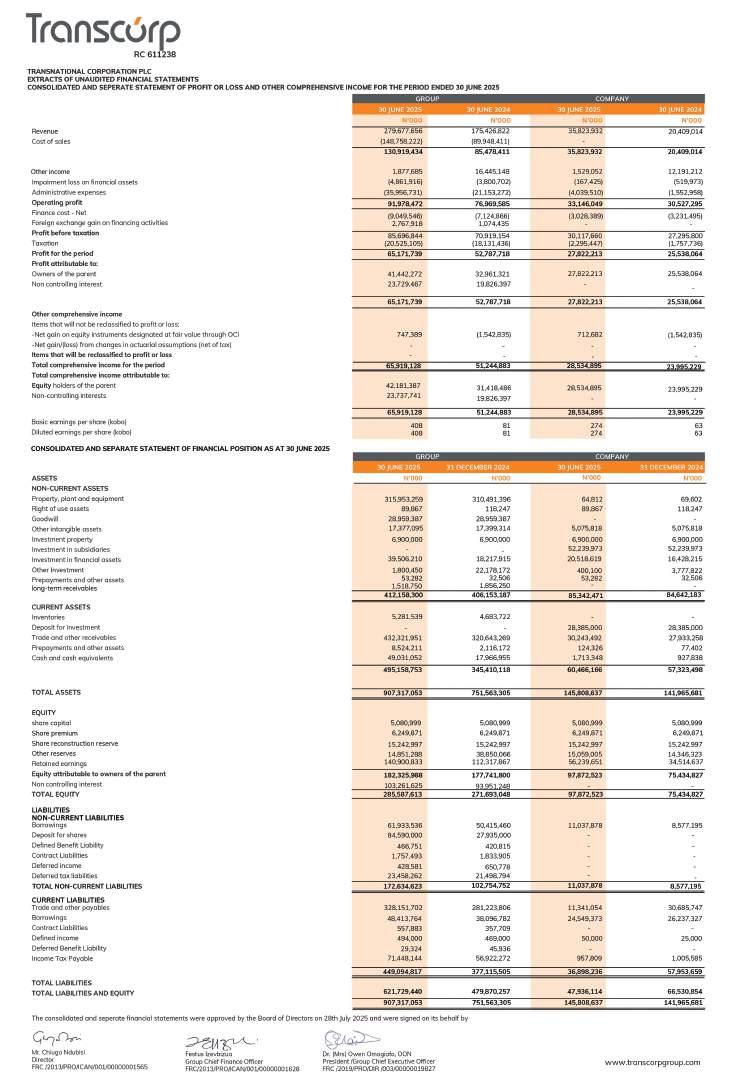
Adedeji: Henceforth, tax exemptions, benefits must comply with applicable laws, warns against forgery, others Tax collections amounted to N3.29trn in June, NNPCL owes N2.20trn from accumulated PSC, PPT, gas income payments, others
James Emejo in Abuja
Executive Chairman, Federal Inland Revenue Service (FIRS), Dr. Zach Adedeji, yesterday announced that issuance of tax exemption certificates had been discontinued.
Adedeji said no further exemption certificates will be issued to all taxpayers, particularly pioneer status companies, Non-governmental Organisations (NGOs), and free zone entities going forward.
Nonetheless, the revenue agency disclosed that it collected tax revenues totalling N3.29 trillion in June.
The performance exceeded the budgeted N1.94 trillion by N1.35 trillion, according to a report on FIRS tax collection, which was presented to the Federation Accounts Allocation Committee (FAAC) at its meeting in July.
Adedeji said claims for tax
In a statement, Adedeji, however, clarified that entities with existing valid exemption certificates “should note that these certificates remain effective until their expiry date, after which renewals will no longer be granted”.
wITH 3/4 of lANDMASS , 2/3 of
It was Professor Muhammad Tijani Bande , former Nigerian Ambassador to the United Nations and President of the United Nations General Assembly who spoke truth to power: he said with 2/3rd of Nigeria’s population, three quarters of the land mass and 64% of Northern votes in favour of President Bola Ahmed Tinubu they have concerns that need urgent action.
The President yesterday fought back the growing opposition from the northern part of the country as the 2027 elections approach, deploying over 60 top government officials, including ministers, heads of security agencies from the region, special advisers, heads of parastatals, among others, to address their grievances.
The North has been unhappy with Tinubu since assuming office in May 2023, with massive support from the region. It is now flaunting its commanding landmass of the country, huge population and massive voting numbers to drive home its opposition to the President’s re-election. It certainly can make or mar the presidential hopes of any candidate
National Secretary of the party.
Giving insights into how some government officials from All Progressives Congress (APC), allegedly, tried to stop the establishment of the coalition party, Nwosu confirmed that the party’s NEC was monitored by seven officials of the Independent National Electoral Commission (INEC).
On July 2, ADC officially transformed into the coalition party, with Mark as interim National Chairman.
Speaking at the last NEC that officially handed over the affairs of ADC to the Mark-led executive, Nwosu said senior government officials promised him three ministerial slots by 2027 if he rejected the idea of using ADC as the coalition party.
He said, “Some people tried to discourage us with promises of automatic ministerial appointments. They want to give me three ministerial slots so that I can take one and give two to others that I chose.
“But I said no. I chose a democratic future of Nigeria. Nigeria cannot be a one-party state after all we did to ensure that the military was exited from governance and returned to the barracks
“By rejecting the offers, the ADC is now the party with the largest membership. ADC is now the government in waiting, with 28 senators and more than 60 members of the House of Representatives
“ADC grew from one small party to a very large party now. Nigerians have shown that they detest what the party in government is doing right now.”
Nwosu added, “We were worried by the declining fortunes of our democracy. That is why ADC stood strong in navigating the coalition process
“Some of our people are being kidnapped. But we insist on the
and it is roaring and flexing its electoral muscles.
Tinubu certainly realises the importance of the North to his electoral fortune and is throwing everything in the fight to get the support of critical stakeholders from the region as the race for 2027 gathers momentum.
The representatives of the president at the event, who sought to convince the leaders of the region on what the Nigerian leader was doing to lift the region from the current insecurity, poverty and other social vices, stated that no other Nigerian leader has looked out for the interest of the region in recent times the way Tinubu has done since 2023. It was also a time for some ‘home truths’, as the leader of the presidential delegation, the Secretary to the Government of the Federation (SGF), Senator George Akume, urged the region to defer their aspiration for 2027 and wait for 2031 in the interest of the unity of the country.
The National Security Adviser (NSA), Nuhu Ribadu, also took his time to enunciate measures so far taken by the federal government to end the insecurity in the north, arguing that while the Tinubu administration met
coalition in the best interest. They use government money to book places for their agents of destabilisation.”
Nwosu said INEC was invited as a regulatory agency to see the formal handing over of the affairs of the party to the Mark-led interim national executive.
He explained, “We all made commitments that we are stepping down as NWC and NEC members. We are very careful with the kind of people we are going to choose to lead the party because a single bed person can spoil the whole good job that must have been done.
“Our constitution says all elected members, serving and non-serving, are NEC members. The last NEC meeting gave the NWC mandate to go ahead with the coalition talks.”
Nwosu stated that the party surged to over three million membership within the first two weeks of the announcement of the coalition.
THISDAY gathered that the objective of the formal handover of ADC’s structures to the Mark-led executive was to bring a definitive conclusion to questions that might have arisen around the state of the opposition alliance. This was particularly in view of insinuations by some persons, like the presidential candidate of ADC in 2023, Dumebi Kachikwu, who had continued to allege usurpation.
The first motion for the final handover was moved by the zonal chairman, South-west, Razzaq Eyiowuawi, while the chairman of the party in Zamfara State, Kabiru Garba, moved that all those expelled in 2022 be recalled. By that development, all those suspended were recalled.
The second motion was moved by outgoing National Organising Secretary, Suleman Ibrahim, who stated that the NWC headed by Nwosu be dissolved
benefits or exemptions must strictly comply with applicable laws and follow procedures approved by the service.
He also warned that any attempt to forge, alter, or misrepresent exemption status would attract strict penalties prescribed by the laws.
Adedeji reaffirmed the service’s commitment to a fair and transparent tax system, and urged all stakeholders to comply with the revised procedures and obligations.
FIRS stated that it was expecting a total of N2.20 trillion from NNPCL, being the cumulative Production
a very bad situation, it has gradually pushed back on the insecurity in all parts of the country.
As the political tempo begins to build ahead of Nigeria’s 2027 general elections, several key figures from the north and within the ruling political elite have recently emerged as strong opponents to Tinubu’s re-election bid.
Among them, the most vocal have been a former Kano Governor and New Nigeria Peoples Party (NNPP) leader, Rabiu Kwankwaso, who has accused Tinubu of neglecting the region; former Secretary to the Government of the Federation, Babachir Lawal; and ex-Kaduna State Governor, Nasir El-Rufai.
While mobilising others, they have brought different strands of growing resistance to Tinubu’s presidency, citing regional discontent and neglect. They have tried to play up the perceived growing sense of political and economic marginalisation since Tinubu assumed office.
Some key political players in the region believe that the Tinubu administration has not maintained the traditional political balance that ensured the North’s strategic interests were protected within Nigeria’s power-
The motion was seconded by Dr. Charles Idowu from Osun State and the NWC became dissolved, with the tenure elapsed effective July 29, 2025.
The motion was put to vote and it was carried out.
The National Caretaker Committee led by Mark subsequently announced that the national secretary was officially Aregbesola. Bolaji Abdullahi was named National Publicity Secretary, alongside deputy national chairmen from the six geopolitical zones.
All members of ADC National Caretaker Committee were later
national economic growth.
The revision by the IMF was contained in the IMF’s latest World Economic Outlook (WEO) released yesterday, titled “Global Economy: Tenuous Resilience amid Persistent Uncertainty.”
The latest prediction was a 0.4 percentage point uptick from the earlier three per cent growth forecast for 2025, and a 0.5 percentage point revision from the 2.7 per cent projection for 2026, as published in the April edition of the WEO.
However, the multilateral institution called for urgent structural and institutional reforms across Sub-Saharan Africa (SSA) as the region grapples with a complex mix of economic challenges.
Commenting on the SSA region, at the virtual unveiling of the WEO update yesterday, Division Chief, Research Department, Deniz Igan said: “Given the challenges SubSaharan Africa is facing, this is an important pillar for renewed growth in the region. There’s a need for both structural and institutional reforms. And what we mean there is to give some specific examples.
Sharing Contract (PSC), Petroleum Profit Tax (PPT) and Joint Venture (JV) PPT, and gas income payment for June 2023 to December 2024.
Taxes from PPT/Hydrocarbon amounted to N355.99 billion, while taxes on gas yielded N223.13 billion. Company Income Tax (CIT) on oil and gas totalled N55.95 billion as well as N1.64 trillion on non-oil CIT. Capital Gains Tax (CGT) totalled N292.95 billion, stamp duties N13.86 billion, non-import Value Added Tax (VAT) N524.86 billion, import VAT N153.29 billion, and electronic money transfer levy N30.37 billion.
sharing framework. Appointments to key government positions, some elites from the region have argued, have been skewed, sparking dissatisfaction among influential northern political and religious figures.
Beyond appointments, there is also resentment over the impact of Tinubu’s economic reforms on the northern masses, including the removal of fuel subsidies and the floating of the naira, which have driven up the cost of living, hitting the informal economy on which many northern Nigerians, a large voting bloc, depend.
Speaking at a town hall organised by the Sir Ahmadu Bello Memorial Foundation to assess Tinubu’s midterm as Nigeria’s leader, the SGF who led the president’s delegation, told the north to wait for its turn, insisting that although unwritten, there’s now an agreement that each region between the south and the north should have eight years each.
The event was themed: “Assessing Electoral Promises: Fostering Government-Citizens Engagement for National Unity”.
Akume said: “It is good to give honour to whom honour is due. If a leader does something that is
admitted to an oath of office
In his acceptance speech, Mark said his appointment was the dawn of a new chapter.
He said, “It is with profound gratitude, humility, and a deep sense of duty that I address you as the National Chairman of the African Democratic Congress (ADC). I am honoured by the confidence reposed in me, and I pledge before you to serve this party with integrity, transparency, courage, and vision.
‘’Today marks not just the begin-
“Further, regional trade integration is one. More investment in infrastructure transportation is another one. And reform of state-owned enterprises, again, especially in the energy sector and transportation sector, are another priority.”
Igan also stressed the importance of equitable fiscal reforms, noting that efforts to raise revenues must avoid deepening inequality or triggering social unrest.
She advocated for the removal of poorly targeted tax exemptions, greater reliance on progressive income taxes, and the need to build public trust through transparent governance. According to her, engaging with stakeholders and sequencing reforms carefully would be essential to protect vulnerable groups and ensure broadbased support for policy changes.
“Now we understand that on the fiscal front, with high debt levels as well, there’s a need for mobilising revenues, and that can generate a sense of unfairness and inequity that could create social backlash.
“And on that front, our advice has been for the design of fiscal reforms that are equitable, that
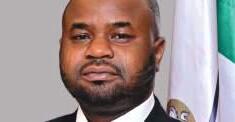
commendable, we must, as citizens, commend him so that he can do more. When he makes a mistake, he’s not God. He should be gently reminded to take corrective measures. I’m saying this because there has been a lot of misinformation in the political space about appointments.
“But when I ran the statistics, in April, the south-west was leading, followed closely by the north-west, then the north-east, north-central, south-south, and then south-east. So when we speak, we should be guided by facts, not sentiments. This country belongs to all of us. Anything that would disturb stability and equilibrium should be avoided.
“It does us no good. There are certain issues I’ll be taking up with a select few. I wouldn’t want to expose them here as to why we believe we should do everything to ensure the territorial integrity of our country.
Those of us from this part of Nigeria, he has promised Nigerians impartiality in governance and a commitment to remodeling our economy, improving security, accelerating infrastructure, job creation, and revitalising agriculture.
Listing the several initiatives by the Tinubu administration to lift Nigeria from its present state, Akume noted that the president has adopted bold and foundational reforms to stabilise and grow the Nigerian economy, including a unified exchange rate, removal of fuel subsidy and the reform of the tax system.
Among others, he stated that the government continues to invest massively in the acquisition of modern technology and equipment, as well as upscaling of skills of members of the armed forces to minimise insecurity.
“Last year alone, diaspora remittance to Nigeria was $22 billion,” he added, highlighting the impact of Tinubu’s reforms.
With the removal of subsidy, he stated that the savings are now being
are efficient, and more specifically, there. What we have in mind is removing poorly targeted exemptions in the tax code, making use of progressive income taxes much more, and building trust and support, as we had covered in detail in our October 2024 report in one of our analytical chapters, by engaging with stakeholders, hearing what they need, improving governance and protecting the vulnerable, and at same time, bundling, sequencing and pacing different measures to make sure that the most vulnerable in the society are protected.”
On his part, Director, Research Department, IMF, Pierre-Olivier Gourinchas, reinforced the urgency of restoring fiscal space in many economies, warning that high debt levels and persistent deficits have left countries exposed to sudden shifts in global financial conditions. He emphasised that protecting central bank independence is critical to maintaining price stability and investor confidence.
He said: “In too many countries, the combination of high public debt and still elevated public deficits
redirected into critical infrastructure and human development while states as well as local governments are receiving increased allocation.
Talking about 2027 politics, he argued that as a collective resolve to protect and defend Nigeria’s democracy, Nigerian leaders in Kaduna in 1999, before the Jos Convention of the Peoples Democratic Party (PDP) agreed to ensure a north-south power sharing arrangement.
“They recognised, and rightly so, that the only way to ensure the unity and territorial integrity of our dear country was to entrench in our minds and practice rotational presidency between the south and the north. I salute their courage, sincerity, and patriotism,” he stated. He listed 18 Nigerian leaders who took the decision to ensure the unity of Nigeria, recalling the June 12 challenges and how the country made a decision to allow the south-west to govern the country after the demise of Moshood Abiola.
“We argued for over three hours. Then finally, with superior reasoning from these people, we agreed that after four years for the south, then back to the north, but later it was increased to eight in the south, eight in the north, so everybody will feel part of this country.
“Their wisdom has paid off. This arrangement guarantees stability of the polity. The north will be eligible for the presidency in 2031, not 2027. I said this because I love you. We love all of you. Let us not do something that will undermine our territorial integrity and tomorrow people may be tempted to support others against us. Nigeria will not cease to exist. But we need patience to arrive at our turn,” Akume stated. He added that the belief that Tinubu’s policies are more aligned with the interests of the south-west
continues to be a cause for concern. The lack of fiscal space makes these countries especially vulnerable to a sudden tightening in financial conditions.
“Such tightening becomes even more likely if central bank independence a cornerstone of macroeconomic, monetary and financial stability- is undermined. Turning to policies, our recommendations continue to call for prudence and the need for improved collaboration.”
He reiterated that restoring stability in trade policy was essential to reducing policy uncertainty.
He added: “We urge all parties to settle trade disputes and agree on clear and predictable frameworks. Collective efforts should be made to restore and improve the global trading system.
“The need for predictable and stable rules extends to other areas of policymaking. It is important to reaffirm and preserve the principle of central bank independence.
“The evidence is overwhelming that independent central banks, with
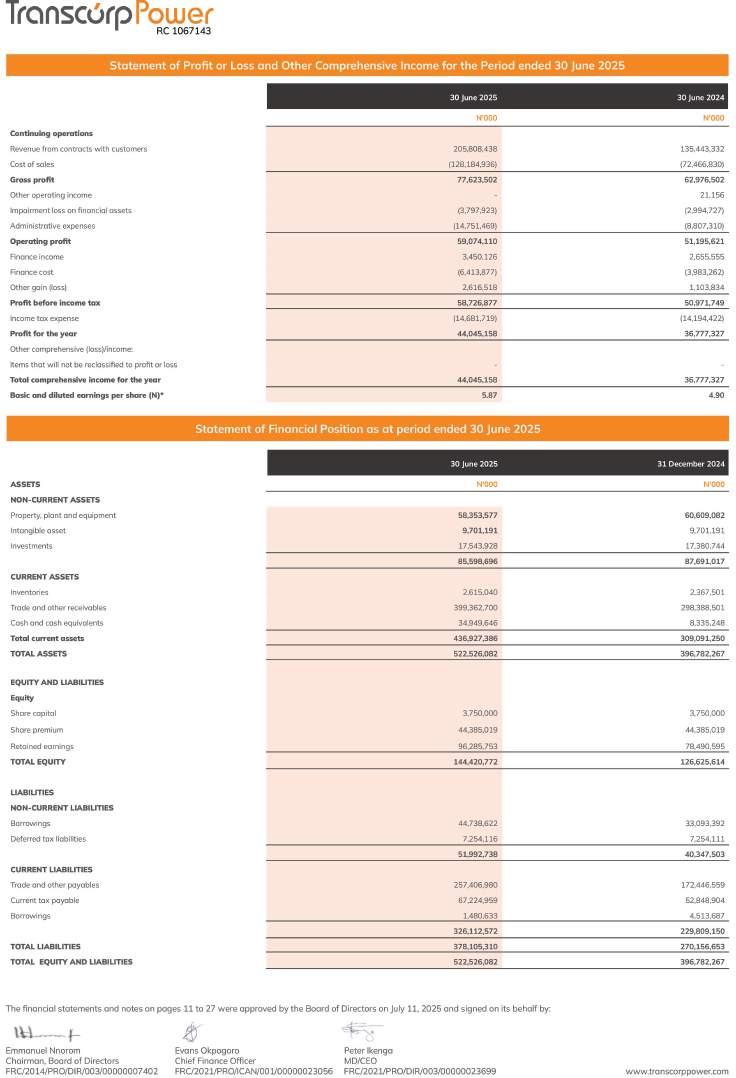
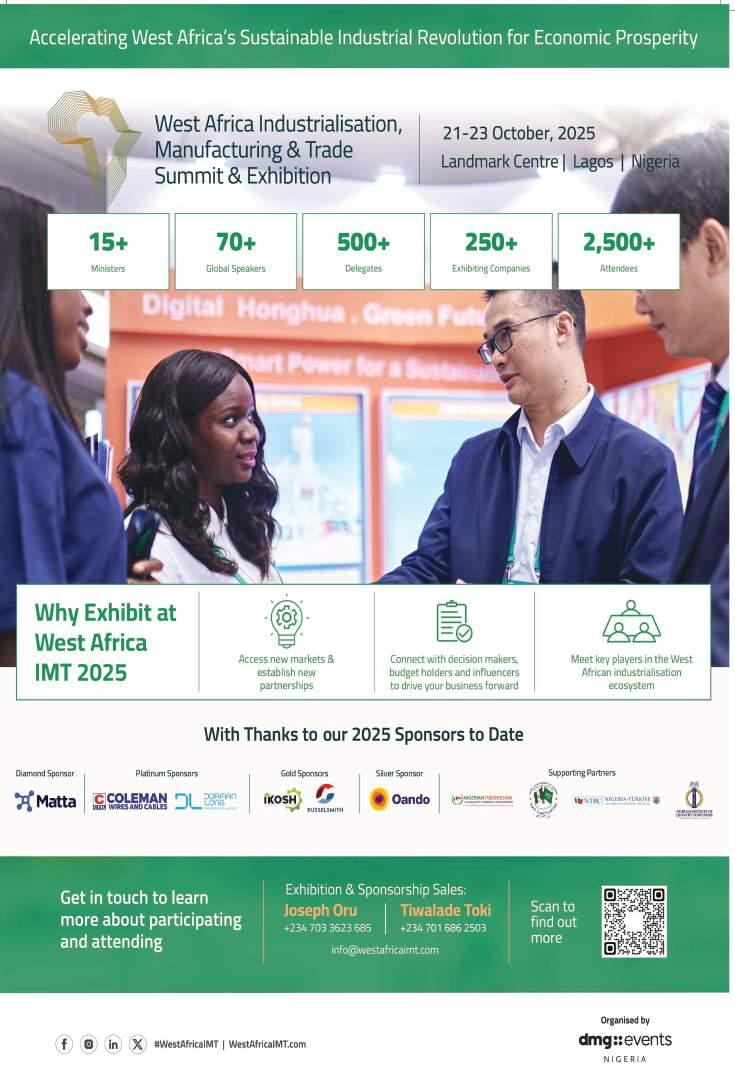


L-R: Category Manager, Rising Stars, Golden Penny Foods (GPF), Mr Abiodun Oshikoya; Associate Director, GPF, Ms Foluke Makinde; Marketing Director, GPF, Mr. Illyas Kazeem; Regional Manager, East GPF, Mr Yomi Akingbade, and Category Manager, Ball Food, GPF, Ms Chiaka Eluchie, during the Golden Penny Food Festival held in Enugu…recently
Yinka Kolawole in Osogbo
The Osun State chapter of the Peoples Democratic Party (PDP) has faulted the Blue Economy Minister, Adegboyega Oyetola over his alleged threats to rig the 2026 governorship election in Osun state.
In a statement issued in Osogbo, the PDP raised the alarm over the grand plot reportedly disclosed to the APC state caucus meeting last Friday by the minister, describing the alleged utterances as “the most brazen declaration
of intent to destroy democracy and a condemnable signal to abuse state power to deny Osun people the legitimate rights to choose their leader in a democracy.”
The statement reads further:
“The Osun state chapter of the PDP is alarmed by several media reports of some inciting statements credited to the former Governor of Osun state and current Minister of Blue Economy, Adegboyega Oyetola on his role in the withholding of Osun local governments allocations and the plan to thwart the will of
DeWiz Engineering Services Ltd, a member of CET Group, has equity stake in Traxport Rail Services Limited. According to a statement signed by the Chairman of CET Group, Chief Obiora Nwizu and Chairman of Traxport Rail Services Limited, Mr. Emeka Ndu, this investment marks the beginning of a strategic, longterm partnership between our two organisations—one rooted in innovation, infrastructure development, and a shared commitment to a cleaner, more efficient freight transportation future for Nigeria and West Africa.
They said: “Traxport Rail Services is pioneering a climateconscious rail freight system connecting Lagos to Kano, using
liquefied natural gas (LNG) as the primary fuel source. This initiative represents a decisive shift away from road-based diesel transport, offering not just environmental benefits but a more secure, scalable, and cost-effective alternative for bulk freight logistics.”
“The CET Group, through DeWiz Engineering, brings to this collaboration a legacy of pan-African infrastructure delivery, with active investments in power generation, engineering services, and the development of an LNG plant at Okpella, Rivers State. Their technical depth and project execution track record significantly strengthen Traxport’s capacity to realise its bold operational targets.”
Golden Penny Foods, a brand of Flour Mills of Nigeria Plc (FMN), has held its first-ever Golden Penny Food Festival in Enugu, marking a major step in its ongoing commitment to connect more deeply with communities across the country and expand its consumer engagement footprint in the Eastern region.
The festival, which took place at Ngwo Park in Uwani, Enugu, attracted a large turnout of residents, families, students, food enthusiast, media, and young people.
Attendees enjoyed a mix of food tasting, live cooking demos, brand and product showcases, and interactive games all
designed to give consumers a richer understanding of the brand beyond the shelf.
The festival in Enugu served not just as a celebration, but as a statement of intent, reinforcing Golden Penny’s longstanding values of nourishment, convenience, and accessibility while actively listening to and engaging with its consumers.
Commenting, Managing Director of Golden Penny Foods Limited Mr. Devlin Hainsworth, said: “The Golden Penny Foods festival is a celebration of our wide range of superior quality and nourishing food products produced as innovative response to the consumers need for tasty nutrition.
electorates in the forthcoming 2026 governorship elections.
“We waited for more than 48 hours with the expectations that
the minister will deny the reports but till now, he has remained silent. We are encouraged therefore, to belief that the minister actually
made those threatening remarks.
“For records purpose, the minister was alleged to have told the members at a high
level caucus meeting of the party hled behind closed doors the following:“I blocked Gov Adeleke from joining the APC.
James Sowole in abeokuta
Ogun State Government yesterday read the riot act against open grazing, warning that herders caught engaging in the act, risk severe consequences. Specifically, the government warned that any violators of
Animal Grazing Regulation and Cattle Ranch Establishment Bill 2020 signed into law by Governor Dapo Abiodun in 2021, risk threeyear jail term and forfeiture of the animals.
The warning came against the backdrop of cases of obstruction of traffic by cattle herders engaging in open grazing in the state.
The Ogun State Government, which gave the warning in a statement by Hon Kayode Akinmade, Special Adviser on Media and Strategy to the Governor, decried the continued violation of the law by certain herders in the state, warning that
the government would not hesitate to enforce the provisions of the law to the letter.
Akinmade, who said the law banning open grazing and prescribing a three-year jail term for violators was passed to address incessant bloody encounters between herders and famers.
The Aare Ona Kakanfo of Yorubaland, Iba Gani Adams, has urged Nigerians in Diaspora to see promotion of the nation’s indigenous languages, culture, tradition and historical background as a call to duty. He said such would help to preserve “our
identity as a people, as well as ensure that our culture and heritage thrives for generations to come.” Adams made the call while delivering a keynote address at the Asia International Summit 2025, organised by the Oodua Progressive Union (OPU), Asia chapter.
Speaking on the theme: ‘Importance of Diaspora Yoruba Activities in Promoting Yoruba Heritage Worldwide’, Iba Adams, who is the Global Convener of OPU spread across 103 countries, noted that the Yoruba people in
diaspora served as a vital bridge connecting the homeland with the world.
“The Yoruba people are rich in culture and tradition, language, arts, and values, which all represent a significant part of Nigeria’s national identity and cultural wealth.
Emmanuel Ugwu-Nwogo in umuahia
As authorities prepare to investigate the circumstances under which a three-storey building collapsed in Umuahia, Abia State, in the early hours of last Saturday, residents have called for a multidimensional approach in the investigation.
The call became pertinent following testimonies of residents of nearby buildings, who said they “heard a very loud sound like thunder” that preceded the collapse of the three-floor building opposite Road II, Low Cost Housing Estate.
A mother of two, Blessing
Ugochukwu, and her children, eight-year-old Chiamaka Favour and six-month-old Great, miraculously survived the incident, as part of the building crashed onto the bungalow the family was leaving in.
The state government has said that a “thorough investigation” would be carried out to determine the cause of the building collapse, adding that the result would be made public.
The state Commissioner for Information, Prince Okey Kanu, made this known yesterday at a media briefing on the outcome of this week’s meeting of the State Executive Council(SEC) meeting.
David-Chyddy Eleke in awka
The NNPC Gas Marketing Limited (NGML) has entered into a joint venture agreement with Zuid Energies Limited for the development of a 6MMSCFD capacity Compressed Natural Gas (CNG) plant and
a 40MMSCFD LNG facility in Ajaokuta, Kogi State.
NGML said the agreement was part of its strategic drive to expand gas marketing and distribution across Nigeria.
The signing ceremony took place on the sidelines of the Mobility-CNG Stakeholders
Workshop held in Abuja on Friday.
The group in a statement said:
“The agreement demonstrates NGML’s commitment to leveraging private sector partnerships to deliver innovative Virtual Pipeline Solutions that enable efficient gas supply to
off-grid and underserved areas.” The workshop brought together key players and regulators in the downstream value chain, including the leadership of NGML and Zuid Energies Limited, who represented their firms in signing the joint venture agreement.
Vitel Wireless, a leading mobile virtual network operator (MVNO), has successful completed its network integration with MTN Nigeria, one of Africa’s largest and most prominent mobile network operators.
This milestone marks the
beginning of a new chapter in providing innovative and affordable telecommunications services to Nigerian consumers.
The company in a statement issued by the Chief Operational Officer (COO) Mr. Chudi Nwabueze, explained that the seamless
integration with MTN, Nigeria’s extensive network infrastructure enables Vitel Wireless to deliver high-quality voice, data, and value-added services across the country.
Nwabueze noted that the partnership underscores Vitel
Wireless’s commitment to expanding connectivity options and enhancing user experiences in Nigeria’s rapidly growing telecommunications market adding that Vitel Wireless is ready to launch its mobile network services across all 36 states and Federal Capital Territory (FCT).
Ayodeji Ake
Rights advocate, Tessy Osakwe, has demanded immediate sanctions against local and international involvement in the suspected trafficking and forced
labour of young African women in weapons manufacturing facilities. Describing the situation as “heinous crimes against humanity,” Osakwe in a press statement lent her credence to a growing outcry over what appears to be modern
day slavery. According to her, emerging reports reveal a disturbing pattern of deception targeting young African women through carefully crafted social media campaigns, “and these women,
mostly between the ages of 18 and 22, were offered phantom scholarships, lured with false promises of lucrative jobs, educational advancement, and a pathway to a better life in Europe.

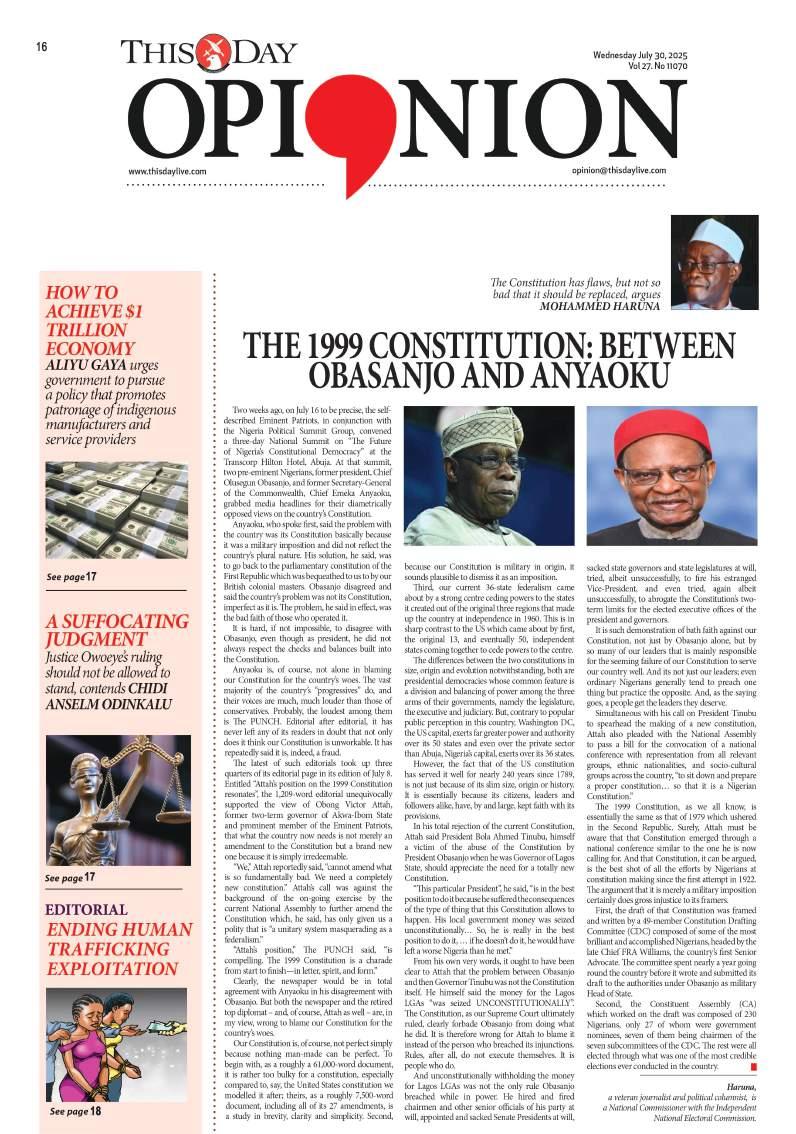
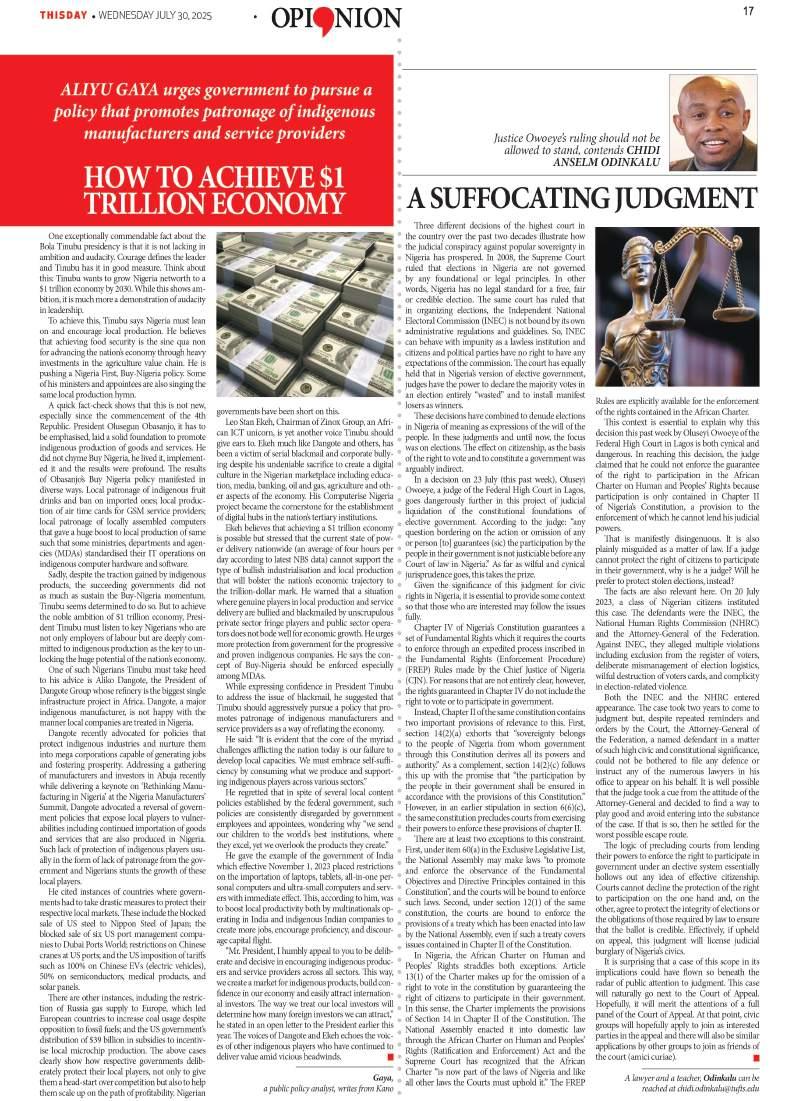
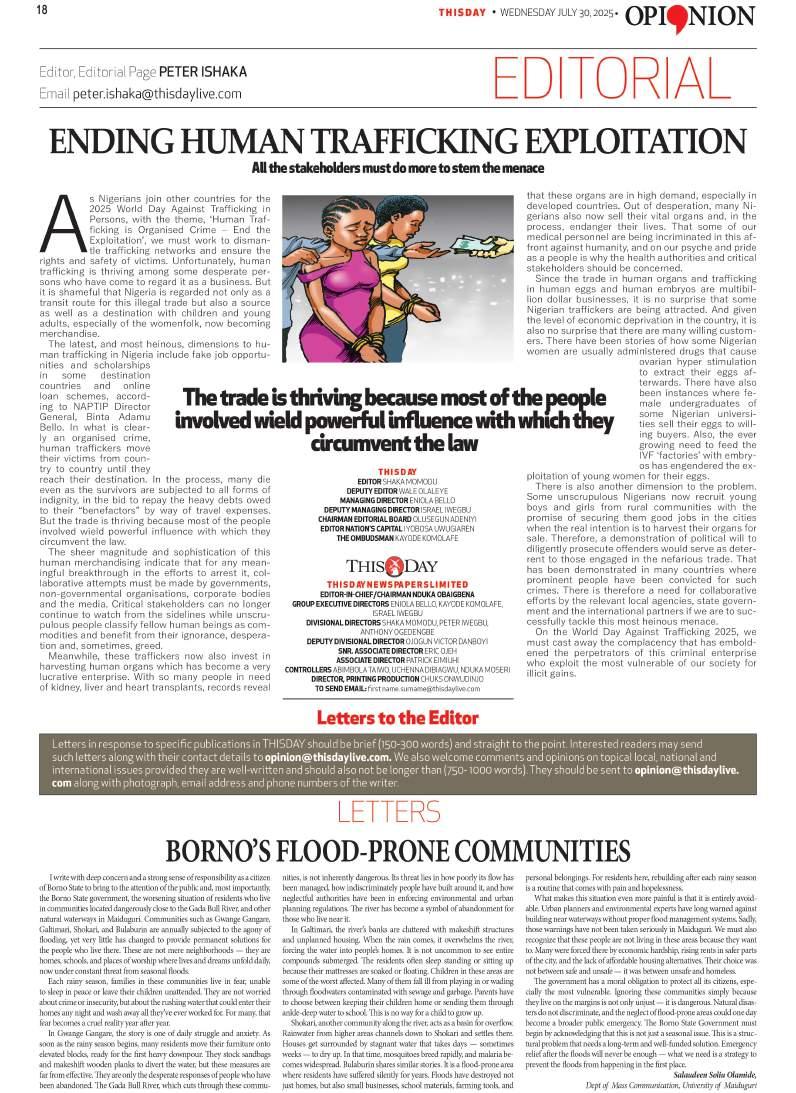
Acting Group Politics Editor DEJI
Email: deji.elumoye@thisdaylive.com
08033025611 sms only
a retired diplomat and chieftain of all Progressive Congress, ambassador Simon Ejike Eze, in this interview hails President Bola Tinubu’s reforms of the nation’s economy and giant strides in curbing insecurity across the federation. He speaks on other national issues, including gang up by some Northern Groups against the re-election of President Tinubu come 2027. linus Eleke brings excerpts:
The opposition is working hard to ensure that President Bola Tinubu loses his second-term bid, and that informed the current coalitions moves. What is your take on this?
My candid opinion is that the presidential election will come, but for us in the All Progressive Congress (APC), and of course, our performing President, there is no vacancy in Aso Rock in 2027. He is the only candidate we have for now, and I’m sure the party, APC, will still nominate him for the 2027 Presidential election. I believe that he has done so much for the country that most Nigerians, if not all, will vote for him for a second term because he has done well.
He has done credibly well in just a little more than two years in his first term.
Some Nigerians might feel he doesn’t deserve a second term owing to complaints in certain quarters that there are increases in hunger, poverty, and a spike in insecurity.
Why do you feel he deserves a second term?
This is a good question. You know, even Mr President himself acknowledges the hardship in the country today. But this hardship is a result of one or two things that he inherited as the president, in terms of the economy, insecurity, and reforms. He said from day one that if all the presidential candidates agreed while campaigning that the fuel subsidy was a scam and had to go, why is there a coordinated attack on his person and his administration now for removing the subsidy? It was necessary that he remove the subsidy to save the country from the fraud that characterized the scheme. Recall also that the ex-President Buhari did not even make provision for the subsidy beyond May 2023. So in June, it had already gone, even without his pronouncing it. So the bold statement he made on the day he was sworn in that the fuel subsidy is gone was a courageous one and, of course, a good omen for the country.
Today, you can see the impact of that removal of the fuel subsidy everywhere you go. Again, there are a lot of programmes now aimed at restructuring the country. We need fiscal federalism to develop and become as great as we all desire. What people don’t know about development in a country is that it doesn’t come without pain, just like childbirth; it will be painful, but after that comes the joy. Even plants you put on the ground will die first before they produce new fruits. That was why Jesus said that until a grain dies, it remains a single grain, but when it dies, it yields a rich harvest. The process of death brings pain, but again, it is a gateway to abundance, prosperity, stability, development, and happiness.
The President is not unaware of this. All Nigerians acknowledge the fact that things are difficult. But the government is on top of the situation, making every effort to see that the situation is improved.
Looking at the coalition, there are politicians in their midst who cannot be dismissed with a pinch of salt. Peter Obi, for instance is now a force to contend with, do you think the coalition is a better option for him going into the 2027 presidential race?
The project to become President of Nigeria by any Nigerian from any part of Nigeria is not a one-day or a two-month or a one-year project. Many of these people you see who have become presidents planned to become presidents. They planned their campaigns and programmes years before they became the president. And Obi just came to the national limelight in 2023.
He needs to build on that, and how will he build on that? By continuing to persevere on his own and carrying his people along. Everybody knows that the presidency has gone to the Yoruba before, as a military Head of State, as
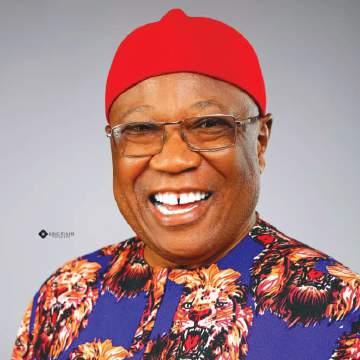
a civilian president, and again as vice president, and now as civilian president in the person of President Bola Tinubu.
So the Southwest has had its fair share. But this thing did not come to them from nowhere. It came from a painstaking plan. Abiola started it. They denied him. They compensated Obasanjo with it because of the Southwest. And then Obasanjo finished, another Yoruba man became the vice president, and now the president.
Even President Bola Tinubu, whom we are talking about today, it took him over 25 years to plan to become the President of Nigeria. That was why he said at the point in time, “It is my turn.” So my advice to Obi is for him to be patient and persistent. I respect him as a person. He has a bright future ahead of him. He is competent. He has all the characteristics to make a good president.
But then the entire Southeast elders have to sit down and begin to look at these issues.
Now, President Tinubu is the President of Nigeria, and there is a gang-up from sections of the North.
Nevertheless, we must respect this rotational presidency in the Nigerian
political system. Eight years in the North and eight years in the South. Now it is the turn of the South, and a Southerner is occupying that post for now in the person of President Tinubu. I believe it is a sacred duty for all Southerners to rally around him to complete his tenure of eight years. Then it will come to be the turn of the North. When they finish their turn after eight years, then it will return again to the South. I believe if the Igbos, as a people, get themselves coordinated, start talking about the year that the presidency will come back to the South, and how we can project a single or two candidates before all Nigerians, because by then everybody would have been saying, “Look, this time it is the turn of the Igbos.” Because the South-South has had its turn in President Jonathan, and the Southwest has had its turn in Obasanjo, Osibanjo, and President Tinubu. But the people who have not had their turn in the modern dispensation are the Igbos and these are the people who actually hold the unity of this country because they are everywhere. I’m talking as an Igbo man now. Everywhere you go in Nigeria, the Igbo man is the second most populated ethnic nationality outside the aborigines. The indigenous people come first. Second is the Igbo.
No other tribe has that in all parts of Nigeria. So I believe Tinubu should have a second term. Peter Obi has a right to contest, no doubt
President Tinubu is the President of nigeria, and there is a gang-up from sections of the north. When some northerners begin to say that they want to take power from a southern president, I begin to wonder. All the military presidents were northerners, almost. But then, to have peace and security in this country, there is a need for us to agree that this presidency must rotate between the north and the south. That is the only way this country can be very stable.
about that, but President Tinubu deserves a second term. His second-term bid should not be truncated by a fellow Southerner.
When you spoke about a gang-up by a section of the country against Tinubu’s second-term bid, are you saying that the gang-up is aimed at truncating the North and South zoning arrangement?
Yes, though the arrangement is not constitutional but conventional, it should not be truncated. Though we still have freedom of association as entrenched in our constitution, and freedom to aspire to any political position. But then, to have peace and security in this country, there is a need for us to agree that this presidency must rotate between the North and the South. That is the only way this country can be very stable.
And by the way, when some Northerners begin to say that they want to take power from a Southern president, I begin to wonder. All the military presidents were Northerners, almost. And how many years have the North been in power? We have to consider all these things before making certain public statements that could be misconstrued by a section of the country. We are not talking about just being in power. We are talking about being in power and being able to turn around the society for the betterment of the people. We are talking about leadership that leads to the development of the people.
Change is what we are asking for. The issue is that people believe that some presidents did not do well, and some have done well. There is no part of this country where you don’t have competent leaders. Bring competent leaders who can do something.
I’ll give you one typical example. What is happening in the FCT now, with Nyesom Wike as Minister, compare it to what happened with the Minister who was there when Buhari was president for eight years. The two years of Wike’s ministerial position in the FCT far outperform the eight years of Buhari’s minister. Compare and contrast the two, and you see the clear difference. So it’s not about who is going to come. It’s about who will come and get things done the way it’s supposed to be done in other climes of the world.
You praised the removal of the oil subsidy. What are some of its noticeable benefits to Nigerians?
The removal of the fuel subsidy by the government is having a tremendous impact on the economy. Before the removal of the subsidy, we used to buy fuel in my part of the country for between N1,250 and N1,300. Even at that, the supply was erratic. Now, with the government’s policies in the downstream sector of the petroleum industry, we find that the issues of queues and petroleum scarcity are gone. There is competition now. We see different prices with little margin. That is how it is done.
We find that now, petrol is sold for between N850 to N950, at worst N1,000. In the East, where I recently came back from, it is sold at N910, just like in Abuja. There are no longer fuel queues and scarcity. This is due to the President’s enablement through his programmes on the Naira for petroleum crude. The President’s Naira for crude policy is yielding its desired results. The Dangote refinery is saying now that it will begin to distribute fuel directly to filling stations across Nigeria. I heard in the press that Dangote has purchased almost 4,000 trucks, which will be used. Now, competition will begin. When the refineries that are working now, the government-owned refineries that are still erratic, are able to be given to the private sector, and all the refineries start operating optimally, we will find that the price of petroleum products in Nigeria will crash.
With foreign reserves rising to $40.11 billion as of July 18, Nigeria now has enough buffer to cover around 10 months of imports, offering a rare sense of stability in uncertain economic times. The Central Bank of Nigeria (CBN) says the stronger reserves, paired with a slight easing in inflation to 22.22 per cent in June, could provide businesses and households with much-needed breathing space as the country navigates its economic recovery. Precious Ugwuzor reports
Against all odds, Nigeria has continued to witness significant improvement in macroeconomic indicators as seen in the rise moderation in inflation rate and growth in foreign reserves.
These macroeconomic advantages include the progressive narrowing of the gap between the official and parallel market rates as well as positive balance of payments.
The FX reforms, instituted by the Olayemi Cardoso-led Central Bank of Nigeria (CBN), new policies instituted by the Federal Government to boost local production, reduce forex demand pressure, and lessen domestic prices have been instrumental to macroeconomic stability.
The expectations are that the apex bank sustains the forex reforms while the fiscal authority strengthens efforts at enhancing FX earnings, especially from gas, oil and non-oil exports.
Analysts said such moves will be sustaining inflation drop as seen in the last report released by the National Bureau of Statistics (NBS) which revealed that the annual headline inflation eased by 0.75 per cent to 22.22 per cent in June from 22.97 per cent in May. The drop was largely driven by base effects, continued FX stability, and minimal volatility in energy prices.
Domestic economy / capital inflows
The domestic economy shows that economic activity remained on a firm upward trajectory in Q2-25, supported by easing inflationary pressures and naira stability, both of which have strengthened business confidence and production.
The CBN composite Purchasing Managers Index (PMI) averaged 52.2 points in Q2-25 indicating broad-based expansion across the agriculture, industry, and services sectors.
In emailed report to investors, analysts from Cordros Securities said: “We expect inflation to remain on a downward trend, especially as the naira is projected to remain stable. Additionally, we expect petroleum product prices to remain stable, supported by low global oil prices, which should help maintain steady transportation costs”.
They explained that capital inflows have equally rebounded since global financial pressures eased in May. The elevated naira yields and a stable FX market continued to attract foreign portfolio investments and bolster investor confidence.
Specifically, inflows from foreign investors surged by 315 per cent to $2.73 billion in June, the highest since March 2019, from $657.4 million in April, with Foreign Portfolio Investment (FPI) inflows accounting for 97.2 per cent of total foreign inflows. The rebound in inflows led to a decline in CBN interventions in forex market as demand pressures waned.
On the other hand, Nigeria’s external reserve has risen to $40.11 billion as of July 18, 2025, making it the highest level recorded since November 2024 when it hit $40.11 billion.
The $40.11 billion reserve level representing approximately 10 months of import cover, signals a significant boost to country’s foreign currency buffer.
This was disclosed by Cardoso during the 301st Monetary Policy Committee’s (MPC) meeting in Abuja. He explained that the rise in foreign reserve marked a significant rebound in Nigeria’s foreign currency buffers amid ongoing efforts to stabilize the exchange rate and rebuild investor confidence. The reserves spike happened despite relatively stronger CBN market intervention this year and external debt servicing as well as weak oil receipts.
Looking ahead, the analysts expect robust FX liquidity from both foreign and local sources, driven by strong market confidence, to continue supporting naira stability in the near term.
Looking ahead, analysts expect headline inflation to ease further in July, supported by a moderation in both food and core inflation components.
“Specifically, we anticipate the slowdown in food prices to be supported by improved market supply from early green harvests and the relative stability of the naira, which is expected
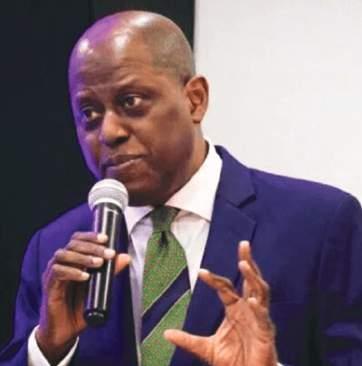
to reduce pressure on imported food prices. Similarly, core inflation is projected to remain broadly stable, supported by a reduced exchange rate pass-through effect and steady energy prices,” they said.
Multiple FX sources activated
The CBN under Cardoso is cultivating multiple FX sources to increase dollar inflows, boost dollar access to manufacturers and retail end users.
From moves to improve diaspora remittances through new product development, the granting licenses to new International Money Transfer Operators (IMTOs), implementing a willing buyer-willing seller FX model, and enabling timely access to naira liquidity for IMTOs, the apex bank has simplified dollar-inflow channels for authorized dealers and other players in the value chain.
The move has led to substantial accretion to the gross FX reserves and supported the stability of the naira.
Given that FX inflows to the economy are strategic in achieving monetary and fiscal policy stability, the CBN under Cardoso puts in a lot of efforts in attracting more inflows into the economy.
Diaspora remittances to Nigeria, estimated at $23 billion annually remain a reliable source of forex to the domestic economy. There are also other sources and policies that are being explored by the apex bank to keep dollar inflows coming.
The CBN's initiatives have supported continued growth in these inflows, aligning with the institution's objective of doubling formal remittance receipts within a year.
The remittances in the economy is expected to increase based on CBN’s ongoing efforts to bolster public confidence in the foreign exchange
market, strengthen a robust and inclusive banking system, and promote price stability, which is essential for sustained economic growth.
Director of Trading at Verto, Charlie Bird, said dollar liquidity dynamic is now more balanced, with foreign investors and airlines able to repatriate funds.
Speaking during Cordros Asset Management seminar titled: “The Naira Playbook”, he said Nigeria is now darling of foreign investors because of improved dollar liquidity in the economy due to positive CBN’s reforms.
Oil production rise aids disinflation
In emailed report, Managing Director, Afrinvest West Africa, Ike Chioke, said crude oil production data from the Nigerian Upstream Petroleum Regulatory Commission (NUPRC), captured the OPEC Monthly Oil Market Report (MOMR), and the Consumer Price Index (CPI) data by the National Bureau of Statistics (NBS).
“Starting with the crude oil production related subject, both the NUPRC data and OPEC’s monthly oil report affirmed that Nigeria’s daily average crude oil production improved by 3.6 per cent month-on-month in June 2025 to 1.5 million barrels per day (mbpd).”
“By adding condensate, total output cleared at 1.7mbpd, marking a 2.4% increase in average crude oil and condensate production over the previous month. The June crude oil production performance marked the second highest monthly average in 2025, with January’s 1.54mbpd performance (1.74mbpd including condensate) still the strongest,” he said.
According to him, output rebound from major terminals – Forcados (up 9.5 per cent m/m to 8.8mbpd), Odudu (up nine per cent m/m 20 2.1mbpd), Qua Iboe (up 2.3 per cent to 5.1mbpd), and Bonny (up one per cent to 7.2mbpd) – more than offset losses from Brass (down 15 per cent m/m to 0.9mbpd), Escravos (down 8.7 per cent m/m to 4.2mbpd), and Tulja-Okwuiboime (down 4.5 per cent m/m to 2.1mbpd) terminals.
“Contextualising the economic impact of the modest improvement in the crude oil production
level for the month (excluding condensate as there is no formal pricing guide), we estimate that Nigeria earned a daily average revenue of $105.0m in June from its crude oil production (given average price of $69.73/bbl), representing a 13.6 per cent improvement over May. Relative to the prior five months, our estimate suggests that the daily average revenue for June is the third highest after January ($122.3m at average price of $79.46/bbl) and February ($112.5m at average price of $76.81/bbl),” he said.
Bringing all of this together, we maintain our position in the recently published H2:2025 outlook report that Consumer Price Index rebasing impact on the base year would largely support a sustained decline in the headline inflation rate till the end of Q3’2025, thereby causing a divergence between statistical reading and consumers' experience on the street.
“Against this backdrop, our model projects the headline rate to ease to 21.6 per cent in July, though m/m reading is expected to increase to 1.75 per cent as against 1.68 per cent in June,” Chioke stated.
As naira rallies, import costs to dip Import costs have been tipped to drop significantly as the naira continues to gain more ground across markets.
The naira appreciated significantly last week, strengthening from N1,580 to N1,530 per dollar, a gain of about 3.25 per cent at the parallel markets. The local currency exchanged at N1,536 per dollar at the official markets, creating N6 per dollar rate gaps between both markets.
Importation costs in Nigeria include various taxes and charges, primarily import duties, VAT, and other levies. These costs are calculated based on the CIF value (Cost, Insurance, and Freight) of the goods, which includes the cost of the goods, insurance, and shipping.
The cost, insurance and freight (CIF) price is the price of a good delivered at the frontier of the importing country, or the price of a service delivered to a resident, before the payment of any import duties or other taxes on imports or trade and transport margins within the country.
Changes in exchange rate can significantly impact the cost of imports, as duties and other charges are often calculated based on the prevailing exchange rate.
Nigeria's total Imports in 2024 were valued at $40.97 billion, according to the United Nations COMTRADE database on international trade. Nigeria's main import partners were: China, Belgium and India
New figures from the National Bureau of Statistics (NBS) reveal that Nigerian imported food and beverages worth N1.67 trillion ($1 billion) during the first quarter of 2025 (January–March), reflecting a five per cent increase from the N1.59 trillion recorded over the same period in 2024.
Analysts from Cordros Securities said the naira appreciation helped cushion the impact of the spike in imported fuel prices triggered by tensions in the Middle East.
“We expect FX liquidity to remain robust, supported by reduced global pressures and stronger market confidence, which continues to attract inflows from foreign portfolio investors (FPIs). Additionally, a stronger net FX reserve position enhances the CBN’s capacity to intervene when necessary. Barring any unexpected shocks, we anticipate that the naira will remain stable in the near term,” they said.
While Nigeria is making strides toward fuel self-sufficiency, it still relies on imports, as seen in the reduced import bill for the first quarter. This indicates a decline in fuel imports but not a complete elimination.
Already, trade tensions have softened from the tariff hike announcements in April. The US President paused the implementation of reciprocal tariffs, allowing countries to negotiate lower tariffs for 90 days, which was recently extended to August 1.
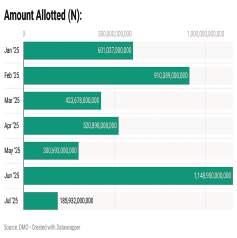
Kayode Tokede
The Federal Government of Nigeria (FGN) bonds attracted N4.67 trillion total subscription in seven months of 2025, helped by continued investor confidence, attractive yields and Nigeria’s stable credit ratings.
However, the N4.67 trillion total subscription in seven months of 2025 is about 9.9 per cent below the N5.18 trillion total subscription reported by the debt office in seven months of 2024.
The auction results released by the Debt Management Office (DMO) showed that the federal government in the period under review allotted an estimated N4.09 trillion as against the N1.93 trillion on offer during the period.
THISDAY gathered that the N4.09 trillion allotted is 6.02 per cent below the N4.35 trillion allotted in seven months of 2024.
The government projected to borrow approximately N13 trillion from FGN bonds to finance its projected 2025 budget deficit, with
a significant portion expected to be raised in the first half through a mix of new and re-opened bonds.
The DMO yesterday announced the successful completion of its FGN bond auction, with a total of N185.9 billion successfully allotted across two re-opened bond offerings.
The auction, held on July 28, 2025, featured the re-opening of two previously issued FGN bonds: N20 billion for the 19.30% FGN APR 2029 bond with a five-year tenor, and N60 billion for the 17.95% FGN JUN 2032 bond with a seven-year maturity.
According to DMO numbers, the auction garnered N39.075 billion in total subscriptions for the 5-Year FGN APR 2029 bond and an impressive N261.597 billion for the 7-Year FGN JUN 2032 bond.
Out of these bids, the DMO allotted N13.430 billion for the APR 2029 bond and N172.502 billion for the JUN 2032 bond—amounting to a total allotment of N185.932 billion, well over the initial offer size.
While the bonds retained their

original coupon rates of 19.30 per cent and 17.95 per cent respectively, they were allotted at marginal rates of 15.69 per cent for the 5-Year bond and 15.90 per cent for the 7-Year bond. This reflects a decline in yield expectations, possibly indicating that investors anticipate easing inflationary pressures or a stable monetary policy environment in the medium term.
The bond re-openings attracted a total of 149 bids—40 for the 2029 maturity and 109 for the 2032 maturity. Of these, 74 bids were successful (15 and 59 respectively).
According to DMO, each unit of the bonds is priced at N1,000, with a minimum subscription amount of N50,001,000. Additional subscriptions must be made in multiples of N1,000.
Although the coupon rates are predetermined, successful bidders at the auction pay a price based on the yield-to-maturity that clears the offered volume, along with any accrued interest from the last interest payment date up to the settlement date.
Interest on both bonds is payable
semi-annually, providing bondholders with regular income during the tenor of the instruments.
The bonds will be repaid in full on their respective maturity dates through bullet repayment, meaning the principal will be paid back in a single lump sum.
According to the DMO, the bonds were issued as part of the government’s strategy to finance the 2025 national budget and manage public debt obligations through domestic borrowing.
The FGN bond continues to attract strong participation as Nigerians seek safer and more predictable returns amid broader market uncertainties.
FGN bond is issued with a minimum subscription of N50,001,000.00 + multiple of N1,000.00 thereafter.
DMO in the January 2025 auction had successfully raised a total of N669.94 billion, with N601.03 billion allotted across three bond tenors. The debt management had sought investors’ support to raise N450 billion.
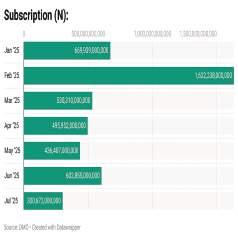
The January 2025 FGN bond auction had marked another significant milestone in the government’s bid to finance critical infrastructure projects and support budgetary needs through domestic borrowing
The DMO said the robust subscription levels highlight continued investor confidence in the government’s debt instruments, driven by attractive yields and Nigeria’s stable credit ratings.
But experts stated that the lower bond yields typically indicate that investors perceive reduced risks and are willing to accept lower returns in exchange for safety.
Also, the modest participation in seven months of 2025 auction suggests that large institutional investors, such as pension funds and asset managers, had excess liquidity to deploy, further compressing yields.
According to market analysts, the strong demand for FGN bond is due to attractive yield stressing that the oversubscriptions also revealed that investors have confidence in
the federal government’s ability to meet its debt obligations.
Analysts at Coronation in a report titled, “2025 year ahead,” said “As we have seen, there was considerable pain in the bond market during the period from 2020 onwards, including 2024. Taking the Bloomberg Nigerian Local Currency Sovereign Absolute Return Index, which is based on a selection of medium and long-dated FGN bonds, recent returns have been poor. The index has returned just 10.8per cent in Naira over the past two years and a meagre 1.4 per cent, mark-to 1 market, in 2024. “2025 could see a reversal in fortunes, in our opinion. If, as we expect, the monetary authorities succeed in bringing inflation under control as the year progresses, with the chances of this increasing in Q4 2025 in our view, then there will be scope for the MPR to be cut and T-bill rates to fall.
Nume Ekeghe
Nigeria emerged as the leading intra-African trading nation in West Africa in 2024, recording approximately $18.4 billion in trade with other African countries, a sharp rise from $8.1 billion in 2023. This is according to the newly released African Trade Report 2025, published by the African ExportImport Bank (Afreximbank).
This more than two-fold increase in regional trade was driven largely by Nigeria’s crude oil exports and the growing momentum around refined petroleum products, following the operational launch of the Dangote Refinery, Africa’s largest located in Lagos.
The reported stated, “In West Africa, Nigeria emerged as the region’s largest intra-African trading country, as trade with the
rest of Africa expanded to reach approximately $18.4 billion in 2024, up from just $8.1 billion in 2023. Crude oil remained Nigeria’s primary export to African markets, but there was growing momentum toward refined product exports following the operational launch of the Dangote Refinery.
“The refinery, Africa’s largest with a processing capacity of 650,000 barrels per day, began
supplying petroleum products directly to Cameroon and other neighbouring markets. This development is expected to reduce dependency on intermediaries and foster regional energy integration.”
The report noted that while several smaller economies recorded strong export growth, Africa’s five largest economies, namely Algeria, Angola, Egypt, Nigeria, and South Africa, contributed significantly to
the increase in the region’s exports. It also stated, “These countries accounted for more than 56.6 per cent of the continent’s total exports in 2024. The exceptional growth in the exports of leading oil-producing countries, namely Angola 130.3 per cent and Nigeria 113 per cent, was a major driver of the continent’s impressive export performance during the review period.
“Africa’s total merchandise imports also exhibited strong performance in 2024, with its growth accelerating to about 7.6 percent to $769 billion, from $714.7 billion in 2023. High import bills, driven largely by still elevated prices of food and energy, coupled with a strong US dollar, impacted African trade.
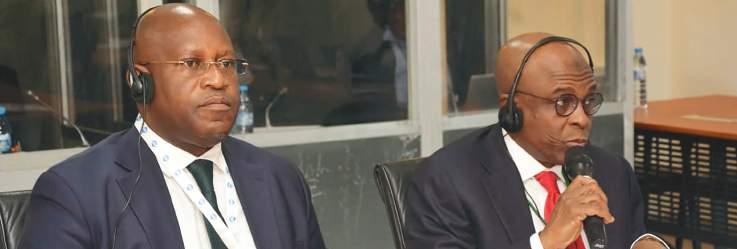
L–R: President of the Port Management Association of West & Central Africa (PMAWCA) and Managing Director of the Nigerian Ports Authority (NPA), Dr.
Dantsoho and Secretary-General of PMAWCA, Mr. Koffi Jean-Marie at the ongoing Meeting of the Board of Directors of PMAWCA in Luanda–Angola
The Managing Director of the Nigerian Ports Authority (NPA) and President of the Port Management Association of West and Central Africa (PMAWCA), Dr Abubakar Dantsoho, has stressed the need for African countries to translate their marine comparative advantages into opportunities for the collective prosperity of their respective countries.
Dantsoho who stated this while speaking at the PMAWCA Board of Directors and Ports Statisticians Network Meetings in Luanda, Angola, added that the sustainability of Africa countries rests heavily on the sustainability of their seaports.
He added that apart from being linked by water, countries in West
and Central Africa are linked by challenges and opportunities.
According to him, “The need to translate our marine comparative advantages into opportunities for the collective prosperity of our respective countries has never been more pressing than it is now. We must not lose sight of the fact that the demonstrated global leadership of ports in the contributions to the Sustainable Development Goals (SDGs), shows that the sustainability of the world especially Africa rests heavily on the sustainability of our Ports.
“As I stated last week in my engagement with the PMAWCA Women Network at the NPA headquarters in Lagos, apart from being linked by water, countries in West and Central Africa are linked by challenges
The Green Impact Exchange (GIX), has announced the appointment of former Group Chief Executive Officer of Nigerian Exchange Group Plc, Mr. Oscar Onyema and four others into its new board members across its parent company.
Onyema, alongside, General William (Bill) Bender (Ret.), James Andrus, and Maria Mahl are the new independent directors, while Kirk Kellogg, will represent GIX’s parent company on the Exchange board.
The new members bring extensive experience in information security operations, sustainability, market structure, and corporate governance. With backgrounds spanning both public and private sectors, this group has been pivotal in shaping the vision and infrastructure of GIX, the first stock market in the US dedicated to the emerging $50 trillion sustainability economy.
The Chairman of the Board and CEO, GIX, Dan Labovitz in a statement said, “These appointments represent a meaningful expansion of our board leadership and reinforce our mission to build a trusted, globally relevant exchange.
“Their experience in innovation, financial governance, and sustainability will be instrumental in the advancement of sustainable finance and helping companies raise capital for their sustainable transitions.”
These new board members bring
world-class expertise spanning cybersecurity, capital markets, ESG strategy, and global regulatory governance:
Onyema, is a capital markets executive who led the transformation of the Nigerian Stock Exchange into a world-class multi-asset platform and took NGX Group public.
With over 15 years of board leadership, he has chaired key market infrastructure institutions and driven landmark initiatives across African and global exchanges. He brings deep expertise in governance, exchange operations, and strategic capital formation to the GIX Board, where he also serves as Chairman of the Board Regulatory Oversight Committee.
General Bill Bender is a seasoned board member, tech industry executive, former USAF CIO, and retired three-star general with extensive expertise in IT, cybersecurity, and governance. As CIO, he oversaw a $17B IT spend and a 54,000-person workforce. He is widely credited with pioneering modernization initiatives, including the Department of Defense’s first Chief Innovation Officer role. He also envisioned a first of its kind initiative to leverage the Silicon Valley entrepreneurial and innovation ecosystem, establishing the Air Force Innovation Unit, which led to today’s Defense Innovation Unit with the Office of the Secretary of Defense.
and opportunities and With the increasing realization of the leverage that economic cooperation confers in the international arena, we will be doing great disservice to ourselves if we fail to maximize this unity through intensified collaboration of our ports.”
He further emphasised that data remains the major driver of effective decision making in Port Management.
“Coming together with the Statisticians Network, this meeting presents a smart model for regional synergy and partnership, which this administration intends to champion, especially given that data remains the major driver of effective decision making in Port Management,” he said.
Dantsho who commended President Bola Tinubu for creating the Marine and Blue Economy
Ministry, said the creation of the Ministry has made implementation of audacious plans for the sector easier.
“With the visionary creation of the new Ministry of Marine and Blue Economy which has re-energized our resolve to invest more in sector-specific talent development order to harness more ideas from operational think tanks such as the PMAWCA.
“The administration of His Excellency President Bola Ahmed Tinubu has made the implementation of our audacious plans easier with the visionary creation of the new Ministry of Marine and Blue Economy which has re-energized our resolve to invest more in sector-specific talent development order to harness more ideas from operational think tanks such as the PMAWCA,” he said.
Kayode Tokede
The Policy Innovation Centre (PIC), an initiative of the Nigeria Economic Summit Group (NESG), has joined key stakeholders at the official launch of the Lagos State Women Economic Empowerment Policy Roadmap, held in Lagos.
Speaking at the landmark event, Board Chairman of the Policy
Innovation Centre, Mr. Udeme Ufot praised the Lagos State Government for its leadership and commitment to advancing gender equality and economic inclusion through a bold, datadriven policy framework.
“Today’s event is not just a policy launch, but a significant milestone in our shared vision for a more inclusive, equitable,
and prosperous society. It signals Lagos State’s clear commitment to creating an enabling environment where every woman has the opportunity to contribute fully and meaningfully to economic development,” Ufot said.
He emphasised that the roadmap is a product of deep consultation and collaborative engagement with diverse women across the state, including women with disabilities, market traders, young innovators, elderly women, and leaders across the formal and informal sectors.
“This moment affirms what we have always believed at PIC: that transformative change is only possible when policy is rooted in reality, shaped by data, and driven by empathy,” he added.
The Deputy Managing Director (DMD) of ProvidusBank, Mr. Kingsley Aigbokhaevbo, has restated the bank’s commitment to continue to sustain its Small and Medium Enterprise (SME) Programme for the foreseeable future as part of its efforts to boost entrepreneurship in the country.
Speaking at an event held by the bank to celebrate the fifth year anniversary of the launch of the SME programme in partnership with the Enterprise Development Centre (EDC) in Lagos, Aigbokhaevbo said that the management of Providus Bank was pleased with the positive impact that the programme has had on Nigeria’s SME space, since it was initiated in five years ago.
Aigbokhaevbo who spoke after listening to the glowing testimonials that some of the programme’s alumni gave, promised that the programme would be sustained as it was the Bank’s key SME programme, which is designed to empower SME owners in Nigeria.
He said: “Being an entrepreneur is not a joke; we know that within the first five years, most of the SMEs struggle to stay afloat. When we set up Providus Bank, we asked ourselves, what we want to do differently. This is one of the things we did differently. The driving force behind the initiative is that the founders of the bank really wanted to give back to the society.
“So apart from creating
employment, what else could we do? The SME idea came to mind and we said how can we help these businesses that have almost 95 percent of them going down within the first five years of their existence? Because they face challenges such as, lack of funding, poor infrastructure, among other things we said let us see how we can come into this space and help to build businesses and give back to the society. This is the main reason is to provide that support as we also pursue one of our strategic pillars for Providus Bank to be, if not the number one, at least one of the top three bank for SMEs support and entrepreneurship growth.”
Aigbokhaevbo, who thanked the
EDC for partnering effectively with Providus Bank on the initiative, urged the graduates to help spread the word about the benefits of the benefits of the programme.
In his speech at the event, the Head, Strategy and Business Development at ProvidusBank, Mr. Ernest Elue, also thanked staff of the EDC and the graduates for partnering with the bank to help achieve its goal of positively impacting the country’s SME ecosystem.
Earlier, in his remarks, the Programmes and Partnerships Director at the EDC, Dr. Olawale Anifowose, said that the success of the initiative was a “testament to the true support that Providus Bank has for SMEs.”
Shareholders of Chams Holding Company Plc have approved the company’s strategic transformation, which includes a name change to Chams Corporation Plc, the launch of a rights issue and private placement, and a comprehensive corporate restructuring as the company marks its 40th anniversary, setting the stage for its next phase of growth. Despite macroeconomic headwinds, most notably the sharp depreciation of the Naira, Chams
recorded impressive financial performance in 2024. Revenue surged by 42%, rising from N9.6 billion in 2023 to N14.93 billion in 2024. Operating profit more than tripled, growing from N370 million to N1.2 billion, while Profit After Tax jumped from N20 million to N391 millio, a nearly twenty-fold increase.
Speaking after the company’s Annual General Meeting (AGM) held in Lagos over the weekend, Chairman Sir Demola Aladekomo expressed
confidence in the company’s strategic direction: “We are delighted that our shareholders have endorsed our transformation agenda. The name change to Chams Corporation PLC reflects our evolving business model and long-term commitment to excellence. ” Former General Secretary of the Independent Shareholders Association of Nigeria (ISAN), Adebayo Adeleke, praised the Board and Management for restoring profitability: “Chams is on the verge
of a remarkable transition, one that sets the company up for another 40 years of impact, especially in the global fintech space.”
The Group Managing Director, Mayowa Olaniyan, emphasized Chams’ regional expansion and new investments: “Through the ChamsAccess X Consortium in Sierra Leone, we are deploying our trusted identity management platforms across West and Central Africa, with plans to expand into North Africa.”
Prof. Anthony Kola-Olusanya is a professor of Environmental Sustainability and former Deputy Vice-Chancellor, Academic, Research, Innovation and Partnership at Osun State University. In this interview with Funmi Ogundare, he explained why Nigeria must adopt effective waste management systems, including recycling and material sorting, to reduce environmental pollution, unlock economic opportunities, and foster innovation and job creation. Excerpts:
Environmental sustainability is still an issue in this clime. How do you think the industries can contribute to the green economy and ensure sustainability to impact the people?
Industries can contribute to the green economy and ensure sustainability by adopting eco-friendly practices and investing in renewable energy. Transitioning from fossil fuels to renewable energy sources such as solar, wind, and hydroelectric power can significantly reduce carbon emissions. This shift, while mitigating climate change, creates new jobs in the green energy sector, benefiting the economy and communities. Another vital contribution is the implementation of sustainable manufacturing processes, which focus on minimising waste, recycling materials, and reducing water usage through efficient production techniques. By embracing circular economy principles, companies can also design products that are easier to repair, recycle, or repurpose, thereby reducing the environmental footprint. Additionally, local communities and government partnerships are essential for promoting sustainability. In this way, industries support community-based ecological projects, including tree planting, conservation efforts, and educational programs focused on sustainability.
These initiatives promote a culture of environmental stewardship and have a direct impact on local populations. Another means of ensuring the crucial role of sustainability is the adoption of green supply chain practices. This way, industries reduce their ecological impact by responsibly sourcing materials and ensuring suppliers adhere to environmental standards. This approach supports sustainable practices globally and builds a reputation for corporate responsibility. Lastly, transparency and reporting on environmental performance help hold industries accountable and build trust with consumers and stakeholders. Transparency and accountability are strengthened through regular publication of sustainability reports
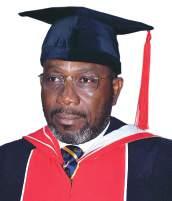
and setting measurable goals for reducing emissions and waste, demonstrating a commitment to the green economy, and inspiring others to follow suit.
How do you measure the environmental impact of an organisation, and what metrics do you use to track progress towards sustainability goals?
To measure the environmental impact of a business or organisation, several key metrics are used to track progress towards sustainability goals. One primary metric is carbon footprint, which measures the total greenhouse gas emissions produced by the organisation. This includes direct and indirect emissions from operations, such as electricity consumption and activities within the supply chain.
Another critical metric is energy consumption. Tracking the amount and types of energy used helps identify opportunities for reducing energy usage and shifting to renewable sources. This metric often includes monitoring the electricity, gas, and fuel consumption of all operations. Meanwhile, an essential metric is water usage. The expectation here is that businesses measure the volume of water used in their processes and implement strategies to reduce consumption, such as water recycling and efficient usage practices. Tracking water usage helps ensure responsible management of this vital resource.
Other metrics that provide insights into the sustainability of an organisation are waste generation and management. The total amount of waste produced, the percentage of waste recycled, and the effectiveness of waste reduction initiatives all constitute measurable metrics. Reducing waste and increasing recycling rates significantly contribute to achieving sustainability goals. Resource efficiency is another crucial metric, focusing on the efficient use of materials and minimising waste. This includes tracking the amount of raw materials used and the waste generated per unit of production. Lastly, monitoring supply chain sustainability is crucial, and this involves assessing the environmental practices of suppliers and ensuring they align with the organisation’s sustainability standards. Metrics might include the environmental certifications of suppliers, their energy and water usage, and their waste management practices. With these metrics, businesses can set specific, measurable sustainability goals and regularly track progress, making adjustments to enhance their environmental performance.
How can individuals contribute to environmental sustainability in their daily lives, both at home and in the workplace?
Individuals can contribute to environmental sustainability in their daily lives by adopting energy-saving habits at home and outside of
their homes. Intangible actions, such as simply turning off lights when not in use, using energyefficient appliances, and setting thermostats to a lower temperature, can significantly reduce household energy consumption. Additionally, opting for renewable energy sources, like solar panels, can further minimise environmental impact. Another effective way to contribute to sustainability is by reducing waste through recycling and composting, thereby diverting waste from landfills. Purchasing products with minimal packaging and choosing reusable items over single-use plastics also helps minimise waste generation. Additionally, repairing and repurposing items instead of discarding them promotes a circular economy. In addition, individuals can promote sustainability in the workplace by encouraging and participating in recycling programs. Reducing paper usage by opting for digital documents and printing only when necessary, can significantly reduce waste and support company policies that prioritize sustainability, such as energy-efficient lighting and office equipment.
Another point is that the transportation choices of individuals play a crucial role in sustainability. Individuals can reduce their carbon footprint by using public transport, carpooling, biking, or walking instead of driving alone. For longer distances, choosing fuel-efficient or electric vehicles can significantly reduce greenhouse gas emissions. Lastly, supporting sustainable practices extends to consumption habits. Individuals can make environmentally conscious choices by buying locally produced and organic foods, supporting companies with sustainable practices, and reducing meat consumption. By making these mindful choices, individuals help drive demand for sustainable products and practices, contributing to a more significant positive environmental impact.
NOTE: Interested readers should continue in the online edition on www.thisdaylive.com
Oluchi Chibuzor
Ronik School has announced plans to embark on a comprehensive re-engineering and transformation process, aimed at reinforcing its core mission to raise great leaders and develop young people for leadership within and outside the country.
These strategic initiatives, it stated, are designed to enhance its long-standing commitment to delivering quality educational services.
Speaking with journalists at the end of the session and graduation event in Lagos, Chris Alabi, Chairman of the Ronik Group of Schools, said that since its inception, the school has maintained a steadfast dedication to quality, evident in its robust infrastructure.
“The school has consistently engaged highly experienced consultants, experts in educational development from both national and international arenas, to provide ongoing advice on upgrades
and the continuous improvement of both teaching and administrative staff quality. This proactive approach ensures the institution remains abreast of the latest developments in the education sector,” he said.
To further ensure a quality learning outcome, the founder stated that the school actively benchmarks against global standards.
“We also visit international schools, home and abroad, to see what they are actually delivering and we try to benchmark at least to see how we can provide the same quality educational service, as well as to beat them as much as possible,” Alabi explained.
He added that the school also adheres to a rigorous recruitment process for its tutors, ensuring that all teachers possess minimum educational qualifications.
Beyond academics, Ronik School has strategically expanded its offerings to include sports, recognising its importance for students’ future.
Alabi noted that the institution has now added comprehensive sports facilities, including multi-purpose courts, basketball courts, and a swimming pool, eliminating the need to send students off-site for such activities.
Acknowledging that the school may now be playing catch-up to its competitors, he emphasised that Ronik School is actively re-engineering its approach.
“This involves a renewed focus on bringing in better teachers now, who are properly equipped with modern teaching methodologies, as education is a constantly developing field. Furthermore, the school has intensified its marketing efforts as part of this transformation.
“Looking ahead, Ronik School is actively planning international collaborations with other
institutions. Additionally, the school intends to introduce vocational training in areas such as fashion design, tailoring, and makeup, aiming to provide students with a broader range of skills that fully equip them for their future endeavors alongside their academic pursuits,” he said.
The Vice-Chairman and Lead Consultant at Ronik, Adebola Olubanjo, announced plans to commence Chinese Language teaching in addition to French in the next academic session.
“Chinese Language teaching will start in the next academic session, and we are starting at the primary cadre,” he said. “We prepare our students to have a more global outlook. It’s essential for them to be able to speak and write other international languages. In our language laboratory, we have facilities to make the programme a success both at the primary and secondary levels. Qualified and experienced teachers are employed to handle the programme.”
Mary Nnah
In a heartwarming display of unity and dedication, the Kuramo College Old Students Association (KCOSA) recently celebrated a milestone event that showcased the power of collective effort and commitment to a common goal.
The 2025 Merit Awards and Achievers’ Night, recently held at the Galaxy Event Centre, Ojota, Lagos, reflected the association’s growth and progress under the leadership of its outgoing president, Mr. Felix Uweribeno.
As Uweribeno reflected on his two-year tenure, he couldn’t help but feel a sense of pride and accomplishment.
His leadership transformed the association’s financial fortunes and restored its dignity. The association’s numerical strength also increased from 170 to 312 members, just as debts were paid off.
The association also donated two sets of public address devices to the junior and senior school, procured 50 chairs and tables for students, paid the salary of an English teacher for the junior school for a year, and printed and distributed over 1,000 notebooks for both schools, among other things.
One of the most significant moments of the evening was the empowerment
initiative, where 11 members received N100,000 each.
The gesture demonstrated the association’s commitment to supporting its members, and served as a reminder that collective efforts can lead to tangible benefits.
Uweribeno described it as a historic moment for KCOSA, as it was the first time such an initiative has been undertaken.
The outgoing president also spoke about the challenges he faced during his tenure, including resistance from some members who refused to hand over documents and cooperate with the administration. However, he remained resolute and worked tirelessly to ensure the association’s
success against all odds.
As Uweribeno passed the torch to the new leadership, led by Anthony Edet, he expressed confidence that the incoming administration would build on the foundation laid by his team. Edet, in his acceptance speech, emphasised the importance of unity and member engagement, pledging to bring back the “KCOSA spirit” and ensure that every member feels valued and supported.
“Our first initiative is to bring back members. This year, we will be celebrating the 10th anniversary of this great association, and we need your support. We cannot achieve any of these goals without your full support,” Edet said.
Sunday Ehigiator
Accion Microfinance Bank has announced a strong financial performance for the 2024 fiscal year, recording N7.65 billion in gross earnings and a Profit Before Tax (PBT) of N800 million.
This was made known during the bank’s 19th Annual General Meeting (AGM), where Board Chairman, Mr. Christian Ruehmer, highlighted the bank’s achievements and vision for the future.
According to the financial report, the bank’s gross earnings rose by 24 per cent to N7.65 billion, while profit before tax jumped 59 per cent to N800 million, compared to N503 million in 2023.
The loan portfolio expanded significantly by 37 per cent, reaching N16.02 billion, with deposits increasing by 49 per cent to N6.41 billion. Total assets also grew by 31 per cent, amounting
to N19.42 billion.
Notably, the bank achieved a reduction in impairment losses on loans, which dropped from N664.83 million in 2023 to N259.50 million in 2024, reflecting improvements in portfolio quality and credit risk management.
Ruehmer emphasised that the bank’s success was anchored on three core pillars: innovation, inclusivity, and responsibility. He stated that these values, supported by deliberate investments in digital infrastructure and operational agility, helped position Accion MfB as a trailblazer in financial inclusion.
“Our commitment remains clear, to continue building a resilient, future-ready bank that is responsive to the evolving needs of our customers,” Ruehmer said.
“We strengthened our business model, maintained strong asset quality, and upheld prudent risk management practices, all while ensuring long-term prosperity.”
Speaking on the results, Managing Director and Chief Executive Officer, Mr Taiwo Joda, described 2024 as a “moderately good year” despite early-year disruptions tied to major technology upgrades.
“Though we fell short of our projections due to a rigorous upgrade of our core banking facilities in the first half, we ended the year with a modest and impressive result,” Joda said. “That investment in technology was necessary to deliver better customer experience, greater speed,
The bank opened new branches in Ilorin, Abuja, and Kano in 2024, with plans to launch in Kaduna before the year ends. “Our expansion programme is very deliberate. These locations are focused on the North, where we are supporting the government to bridge the financial inclusion gap,” Joda added.
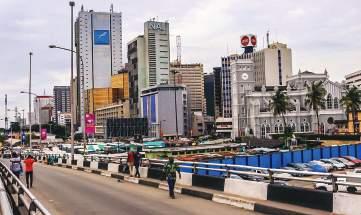
The Nigerian-American Chamber of Commerce (NACC), has announced its upcoming Trade and Investment Mission to the United States, scheduled to take place in September in Miami, Florida.
Under the theme, “Flavours Without Borders,” this strategic initiative aims to deepen trade and investment ties between Nigeria and the United States.
The NACC in a statement said the mission will spotlight Nigeria’s vibrant portfolio of indigenous foods, spices, and value-added products while offering local exporters direct exposure to cutting-edge innovations in packaging, labelling, and regulatory compliance within the U.S. market.
“A key highlight of the mission includes participation
in the American Food and Beverage Show in Miami, Florida. The National President of NACC, Sheriff Balogun, will be leading the delegation to the United States. Some of the delegates will also attend the PACK EXPO in Las Vegas, one of the world’s premier exhibitions for packaging and food processing solutions.
“Attendees will enjoy highimpact activities such as a welcome networking dinner featuring African-American fusion cuisine, expert-led webinars on export readiness, and U.S. compliance, a robust product showcase at the WTC Miami, and a guided tour of Miami’s Export Processing Zone in collaboration with Enterprise Florida,” it said.
The Chairman Trade Mission
Committee of the Chamber, Dr Violet Abdulkadir, stated that the participating, Nigerian businesses will gain direct access to the U.S. distributors, retailers, manufacturers, and investors while also receiving first-hand insights into American standards on food safety, traceability, sustainability, and presentation.
“This mission fosters technology and innovation transfer, strengthens Nigeria’s value chains, and elevates its culinary and cultural identity on the global stage.The initiative also benefits American businesses by expanding sourcing opportunities, introducing new African consumer products into diaspora markets, and creating reliable supply chain linkages between the U.S. firms and credible Nigerian exporters.
Nume Ekeghe
Union Bank of Nigeria proudly participated in the graduation ceremony of the Pacelli School for the Visually and Partially Sighted on 23 July 2025, honouring the resilience and academic achievements of visually impaired students.
The event, held on the school premises, highlighted the importance of inclusivity and determination in education. As a 108-year-old institution committed to social responsibil-
Nume Ekeghe
ity, Union Bank’s involvement reflects its enduring support for Persons with Disabilities (PWD) and its dedication to fostering equitable access to education.
The Bank’s Chief Brand and Marketing Officer, Olufunmilola Aluko, expressed her admiration for the graduating students, “Union Bank proudly stands as a champion of inclusiveness and equitable representation.
Through our UnionCares corporate social responsibility initiative, we are committed to
supporting vulnerable and underrepresented communities. We celebrate the incredible achievements of these students and reaffirm our dedication to empowering them to reach their full potential.”
UnionCares is Union Bank’s CSR Arm focused on creating sustainable social impact in key areas, including, support for vulnerable groups, empowering persons with disabilities and other marginalised communities through inclusive initiatives.
Group Chairman, Nigerian Exchange Group (NGX) Dr. Umaru Kwairanga, is slated to Chair the 2nd Business Journal Fintech & Financial Inclusion Roundtable 2025.
The convener of the discuss in a statement noted that the theme of the Roundtable is Fintech & Financial Inclusion: The Opportunities & Challenges for Nigeria and is scheduled for Friday, August 29, 2025 at Oriental Hotel, Lekki, Lagos.
Publisher/Editor-in-Chief of Business Journal Media Group, Prince Cookey, said the choice of Umaru Kwairanga to chair
the event is a reflection of his immense and commendable journey in the Nigerian economic system over the years. He stated: “Dr. Umaru Kwairanga is a noted player in the Nigerian economy and financial services sector. Over the years, he has carved a positive niche in driving the narrative in national policy formulation, implementation and review. He remains a worthy point of reference and role model to current and future players in the Nigerian economy.”
Umaru Kwairanga is a notable player in the Nigerian corporate world, a thorough-bred professional
and a prominent community leader in Gombe State and the North East region.
He has served at the highest levels of the banking, pension, investment, manufacturing and commercial sectors of Nigeria’s economy. He is the current Chairman of the Nigerian Exchange Group Plc, Nigeria’ oldest stock exchange and also Chairman of Tangerine General Insurance Limited.
The NGX Chairman is also a Director on the Boards of First Bank Senegal Limited, Tangerine Apt Pensions Limited and the Group Managing Director of Finmal Finance Services Limited.
Kayode Tokede
The Nigerian stock market yesterday recorded a significant gain of N1.74 trillion by market capitlisation to cross the N87 trillion historic record, driven by a strong half year ended June 30, 2025 corporate earnings reports.
As Dangote Cement Plc gained 3.05 per cent or N15.10 per share to close at N509.60 per share and MTN Nigeria Com-
munication Plc appreciated by 9.99 per cent or N41.00 per share to close at N451.60, the market capitalisation of all listed stocks on Nigerian Exchange Limited (NGX) added N1.74 trillion or 2.03 per cent to close at N87.191 trillion from N85.455 trillion it opened for trading.
This brings the NGX ASI’s Month-to-Date (MtD) and Yearto-Date (YtD) returns improved to +15per cent and +34per cent,
respectively.
On sectors, the NGX Industrial Goods Index (+2.9per cent), NGX Insurance Index (+1.9per cent), NGX Banking Index (+1.6per cent) and NGX Oil & Gas Index (+0.2per cent) advanced, while the NGX Consumer Goods Index (-0.3per cent) closed lower. Investor sentiment, as measured by market breadth, closed positive as 51 stocks advanced, while 25 declined. Berger Paints
Nigeria, Learn Africa, Thomas Wyatt Nigeria and Haldane McCall recorded the highest price gain of 10 per cent each to close at N34.10, N6.93, N3.19 and N4.73 respectively, per share.
On the other hand, Abbey Mortgage Bank and Northern Nigeria Flour Mills (NNFM) led the losers’ chart by 10 per cent each to close at N7.20 and N93.15 respectively, while Vitafoam Nigeria followed with
a decline of 9.96 per cent to close at N79.10, per share. The total volume of trade increased by 18.25 per cent to 940.804 million units, valued at N30.627 billion, and exchanged in 28,358 deals. Transactions in the shares of Fidelity Bank topped the activity chart with 111.265 million shares valued at N2.335 billion. Royal Exchange followed with 74.075 million shares worth N110.803 million, while Jaiz Bank
On
Afrinvest Limited said, “we expect the market to sustain its upward trajectory as earnings releases of major
ignite fresh buying opportunities.”
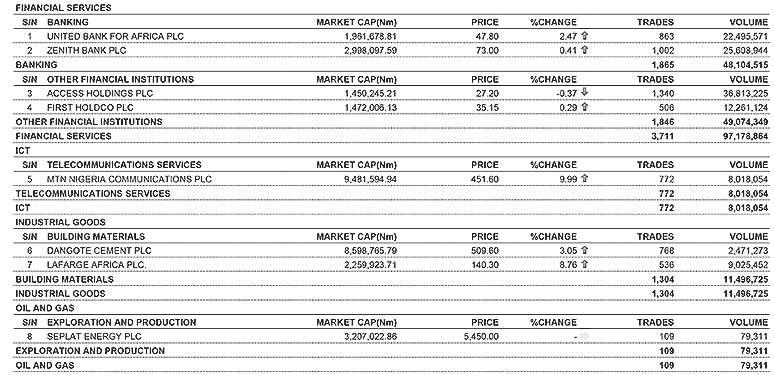
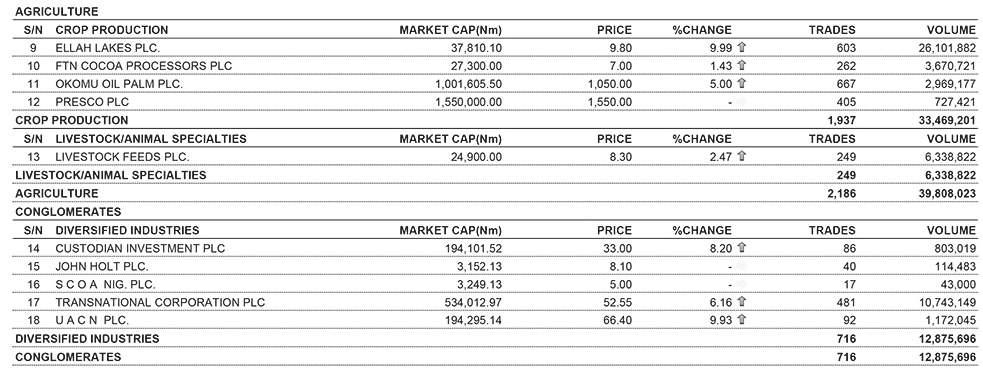

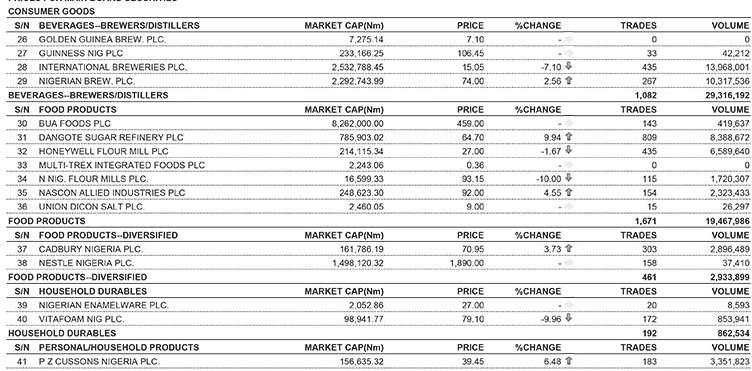

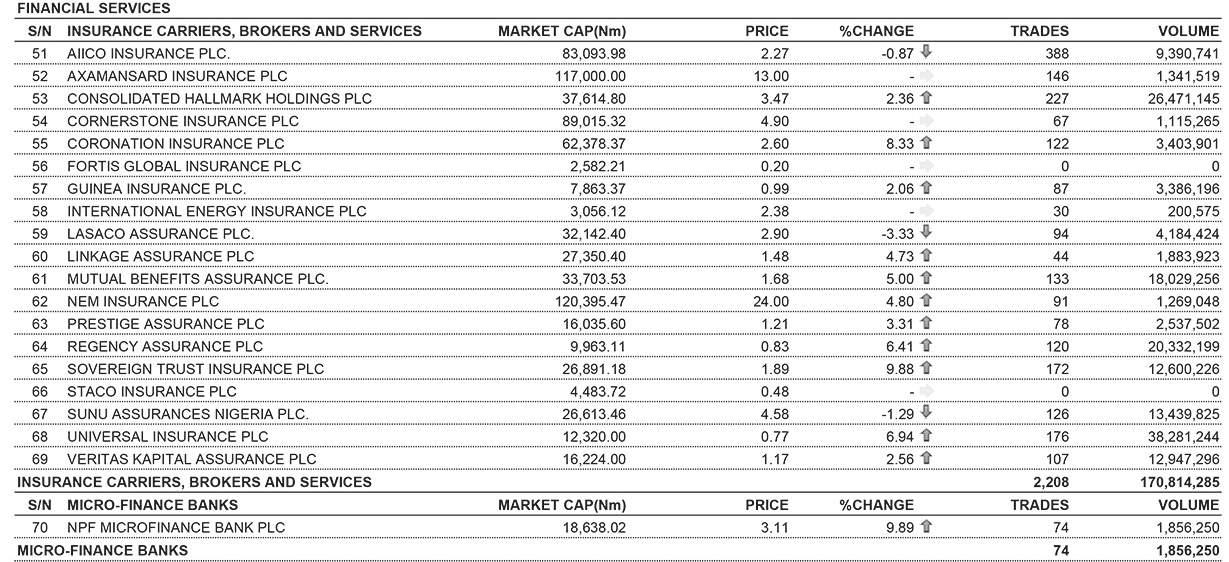

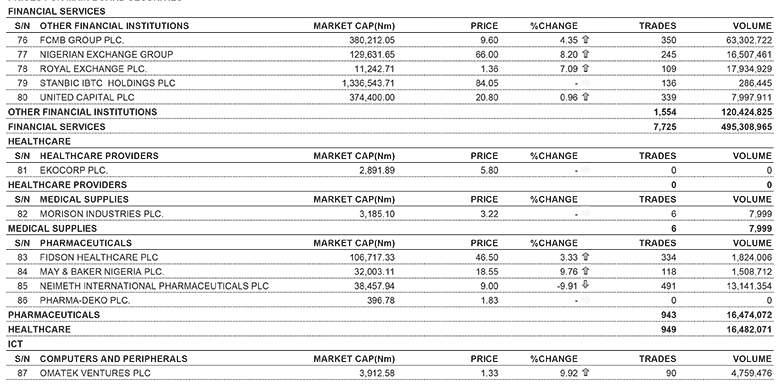
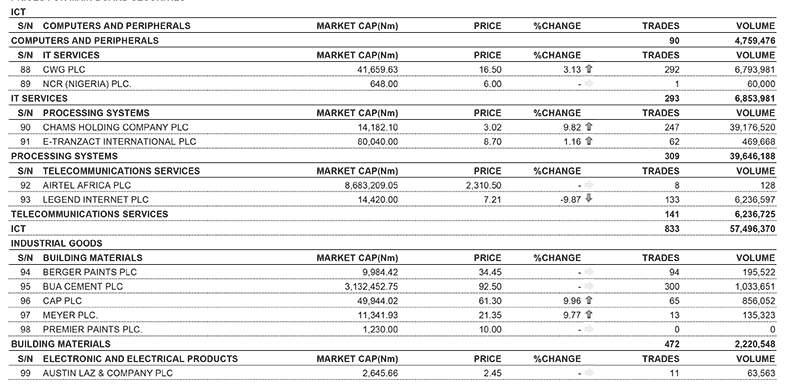

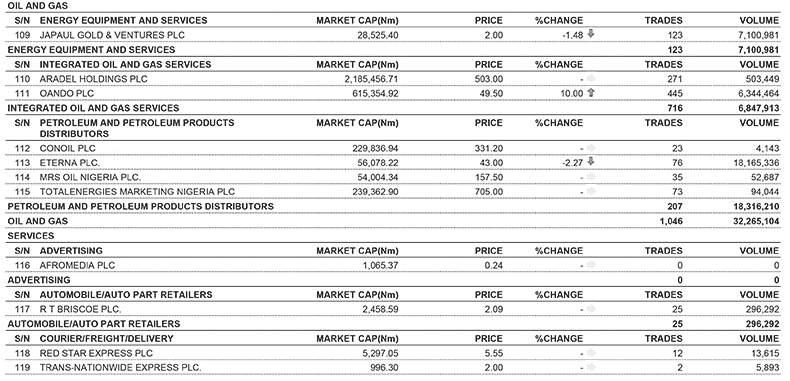

L-R, Non-Executive Director, Dangote Sugar Refinery Plc, Abdu Dantata; Non-Executive Director, Dangote Sugar Refinery Plc, Maryam Bashir; New Chairman, Dangote Sugar Refinery Plc, Board of Directors, Mr. Arnold Ekpe; Executive Secretary National Sugar Development Council, Mr. Kamar Bakrin; Non-Executive Director, Dangote Sugar Refinery Plc, Bennedikter Molokwu; Dangote Sugar Refinery Plc, Executive Director Operations, Hajiya Mariya Aliko Dangote; Dangote Sugar Refinery Plc, Group Managing Director/CE, Ravindra Singhvi; at the Dangote Sugar Refinery Plc Board of Directors Retreat held to review the Dangote Sugar “Sugar for Nigeria” Project Master Plan Strategy amongst others in Lagos ,.. recently
Deji Elumoye
President Bola Tinubu on Tuesday approved the immediate employment of 200 recipients of the National Youth Service Corps (NYSC) President’s Honours Award into the federal civil service, and a N250,000 cash award and postgraduate scholarships for each beneficiary.
Tinubu also announced automatic employment for 10 physically challenged ex-corps members, who sustained injuries in the line of duty,
describing them as heroes whose sacrifices will never be forgotten.
Represented by Minister of State for Labour and Employment, Hon. Nkeiruka Onyejeocha, at the combined 2020–2023 NYSC President’s Honours Award ceremony held in Abuja, the president said the gesture was a demonstration of government’s commitment to youth development and national service.
He praised the awardees for their patriotism, discipline, selflessness, and exemplary service, stating that their sacrifices are critical to the
country’s social cohesion and long-term prosperity.
Tinubu stated, “The Head of the Civil Service of the Federation and the Federal Civil Service Commission have been directed to immediately commence the employment process.
“In appreciation of their service to the nation, all honourees will receive N250,000. Each award recipient will also be granted a scholarship to pursue postgraduate programmes up to PhD level in any university in the country.”
Tinubu said his government had designed several youth-centred initiatives across education, skills development, technology, and entrepreneurship to harness the energy of Nigerian youth.
pledges commitment to youth development, national unity is our greatest strength,” he said.
“We remain firm in our resolve to put young people at the forefront of our economic and national development agenda,” he stated.
The president urged Nigerian youths to remain optimistic, warning against those who seek to destabilise the country.
“Have faith in Nigeria. Our unity
Chair of the House Committee on Women Affairs and Social Development, Rep. Kafilat Ogbara (APC-Lagos), has urged broad-based support for a bill that would create 182 new legislative seats reserved specifically for women across Nigeria’s political system.
Speaking at a press briefing held Tuesday at the National Assembly in Abuja, Ogbara expressed deep concern over the continued underrepresentation of women in governance, especially in legislative roles, despite women accounting for nearly 50 per cent of Nigeria’s population.
She explained that the Reserved Seats for Women Bill was introduced to correct that imbalance by legally allocating a set number of seats to women in both the National As-
sembly and state Houses of Assembly.
Ogbara called on all relevant actors, including public officials, civil society groups, and ordinary citizens to back the initiative. She described it as a necessary step towards removing longstanding obstacles that had prevented women from participating fully in the country’s political processes.
The lawmaker emphasised that the bill went beyond legislative reform, adding that it represents a broader national commitment to inclusive governance and gender equity.
She appealed to the public to support the effort to build a fairer Nigeria where women’s voices were not only heard but also actively shaped national policies and drove sustainable development.
Ogbara outlined the bill’s provisions, which included one reserved seat for women in each of the 36
states and the Federal Capital Territory (FCT) in both the Senate and the House of Representatives.
Additionally, it proposed three reserved seats for women in each state House of Assembly.
She stressed that the bill was inclusive, with specific measures to ensure representation of women from varied and historically underrepresented groups, including young women, women with disabilities, and those from marginalised communities.
According to her, “This legislation isn’t just about increasing headcounts and that it’s about ensuring that women’s voices, experiences, and priorities are integrated into the policymaking process.
“It also aligns with global commitments, such as the Sustainable Development Goals, particularly Goal 5, which focuses on gender equality.”
Echoing her support, Senator Ireti Kingibe reinforced the idea that when women committed to a cause, they delivered tangible results.
Kingibe encouraged women to collaborate both among themselves and with supportive male allies to ensure the bill’s passage.
She highlighted how Nigeria’s limited female legislative representation weakened its standing in global parliamentary platforms.
Kingibe argued that the bill was not just about representation, but it was a tool for unleashing Nigeria’s full development potential by ensuring more balanced and effective governance.
Minister of Youth Development, Ayodele Olawande, commended Tinubu’s dedication to uplifting Nigerian youth, citing recent increases in corps members’ monthly allowances from N33,000 to N77,000.
Olawande said, “This is not a political gesture but a clear response to economic realities and a show of appreciation for the contributions of our young people.”
The minister praised the NYSC for producing generations of committed young Nigerians who had impacted underserved communities through healthcare, education, and civic engagement.
Olawande also acknowledged ongoing legislative support for the Ministry of Youth Development and pledged continued reforms in areas, such as renewable energy, digital skills, and youth entrepreneurship.
Director-General of NYSC, Brigadier-General Olakunle Nafiu, described Nigerian youth as “the vital force for our collective progress and preservation of national unity”.
Nafiu explained that the 200 honourees were selected through a rigorous screening process that assessed their service impact, leadership, and commitment to community development, while 10 additional honourees under the NYSC Hope Alive programme were recognised for continuing to serve, despite injuries sustained
in the course of duty. Nafiu said, “These young Nigerians are not just awardees, they are heroes of our republic.” He paid tribute to four corps members who lost their lives in active service.
The director-general disclosed that in 2025 alone, over 6,000 medical personnel, including 2,319 doctors, were deployed through the NYSC’s Health Initiative for Rural Dwellers (HIRD), reaching more than four million Nigerians with free medical services, health education, and disease prevention. He stated that NYSC’s entrepreneurship and skills acquisition programmes had been revamped to reflect digital and market-driven demands, training over 250,000 corps members annually.
“We are not just producing graduates; we are producing problem-solvers, innovators, and leaders,” he said.
The NYSC boss further expressed hope that the pending NYSC Trust Fund Bill would soon be signed into law, offering sustainable financial support for post-service enterprise and youth reintegration.
Addressing the honourees directly, he said, “You may have left the khaki behind, but you now wear the confidence of a great nation. This award is not just a reward; it is a responsibility. You are ambassadors of unity and innovators of hope.”
James Emejo in Abuja
The Nigerian Economic Summit Group (NESG) has concluded plans to host the 31st Nigerian Economic Summit (NES #31).
With the theme, “The Reform Imperative: Building a Prosperous and Inclusive Nigeria by 2030”, the event seeks to explore how Nigeria can entrench reform-minded governance, reduce policy reversals, and ensure reforms are citizen-centred, inclusive, and results-driven.
NESG disclosed this in a statement signed by acting Head,
Strategic Communication and Advocacy, NESG, Ms. Ayanyinka Ayanlowo.
She said the event remained a pivotal opportunity to recommit to the country’s transformation agenda.
She stressed that as the premier private sector-led think tank and policy advocacy institution, NESG remained steadfast in its commitment to fostering inclusive, transformative economic growth through continuous dialogue and partnership.
The August event scheduled to
take place from October 6–8, 2025, will bring together key national and international stakeholders including business leaders, policymakers, civil society actors, academics, and youth to reimagine Nigeria’s economic direction amid shifting global paradigms and domestic priorities.
Ayanlowo said this year’s edition comes at a critical time when the nation strives to consolidate the gains of past reforms, safeguard macroeconomic stability, and lay the groundwork for sustained and inclusive prosperity.
In a landmark development set to reshape Nigeria’s hospitality, travel, and tourism landscape, the National Institute for Hospitality and Tourism (NIHOTOUR) has officially inaugurated the Hospitality, Travel and Tourism Practitioners Disciplinary Tribunal - a pioneering body established to enforce ethical standards, licensing compliance, and professionalism across the sector.
The tribunal is chaired by the respected former Chief Judge of the FCT, Justice Ishaq Bello, whose extensive experience in legal reform and judicial leadership brings credibility and strength to the initiative.
Chairing the event was Hon. Muktar Mohammed, Chairman of
the House Committee on Tourism, who delivered a rousing keynote address applauding NIHOTOUR’s forward-thinking initiative.
He declared the tribunal a “turning point in our collective resolve to promote quality, safety, and global best practices in the sector.”
“The hospitality industry is a vital pillar of our national economy. However, for it to thrive sustainably, compliance with professional training and licensing standards must not be optional — it must be enforced,” Hon. Mohammed stated.
He went on to emphasize that the tribunal is not merely punitive but reformative in spirit: “It will serve as a platform for transparency, fair-
ness, and reform. It will ensure that hoteliers, operators, and institutions meet the required benchmarks set by NIHOTOUR and the Federal Ministry of Tourism.
“This is not just about enforcement — it is about protecting the integrity of our industry, enhancing service delivery, and building a tourism sector we can all be proud of.” The Minister of Arts, Culture, and the Creative Economy, Hannatu Musa Musawa, was ably represented by Mr. Ayodele Adebanjo, who delivered the minister’s message of support. In her remarks, the minister praised the establishment of the tribunal as a bold and necessary move.
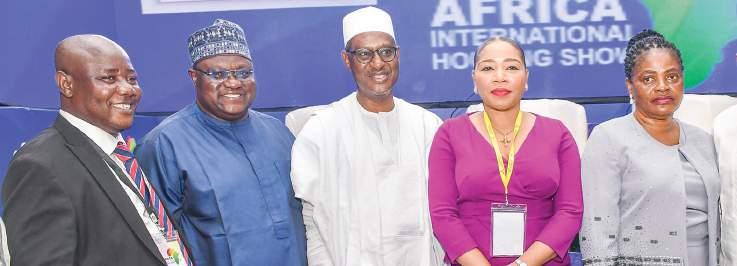
L-R: Founder/CEO, Africa International Housing Show, Festus Adebayo; Director General and Chief Executive Officer, Nigerian Building and Road Research Institute (NBRRI), Prof. Samson Duna; Minister of Housing and Urban Development, Arc. Ahmed Dangiwa; Founder/CEO, Lexon Capital, Mrs. Ify Umunnakwe, and Permanent Secretary, Ministry of Housing and Urban Development, Mrs. Claire Davison-Williams, during the opening ceremony of Africa International Housing Show in Abuja... yesterday
Donates N1bn through her RHI for victims of the killings and attacks
Deji Elumoye in Abuja
Wife of the President, Senator Oluremi Tinubu, has flayed the recent killings in Benue state, describing the dastardly acts as heart wrenching and unnecessary.
Speaking Tuesday in Makurdi during a condolence visit to Benue State Governor, Rev. Father Hyacinth on the recent killings especially in Yelwata and Dauda communities, the First Lady, according to a release issued by her Media Assistant, Busola Kukoyi, urged the people of the state “to bury any grievances and go back to cordial and peaceful coexistence”.
According to her: “When there are disagreements, dialogue and patience remain the best solution, rather than violence. The way of peace is the way of love and love is the greatest power on earth. Despite it suffers long, it conquers all things”.
She pointed out that peaceful co-existence remains the panacea for increase, growth and development of any community, people or nation.
“Benue State is known as the nation’s “food basket” because of its rich and diverse agricultural produce. Benue state has a lot to contribute to our nation’s growth and prosperity, especially in the area of food security”.
Responding to some of the prayers of earlier speakers, Mrs Tinubu assured that all that had been said would be passed on to the President and other concerned authorities.
Earlier, Governor Hyacinth Alia observed that the recent killings in the State re-emphasised the urgent
need for State and Community Policing.
“This just underscores the urgent need for Stateand community Policing which will ensure swift and timely response, effective intelligence information gathering and safer communities”.
He commended the First Lady’s
pet project, the Renewed Hope Initiative, which he said has been characterised by compassion, kindness and support.
He said: “Benue State is overwhelmed by your thoughtfulness, kindness, compassion, empathy and support. We see this and it is a much-admired leadership we
appreciate and cherish”.
Also speaking, the Tor Tiv, Prof. James Ayatse called on Security agencies to do more to flush out the killer herders who have continued to unleash terror in the State as their activities remain a sickness which if not attended to can consume the nation.
The monarch explained that their activities have robbed the State of its status as the food basket of the nation as many farmers now live in fear of going to their farms. He appealed to government quickly come to the aid of the State so that there would be quantum improvement in food production.
Seriki Adinoyi in Jos and Linus Aleke in Abuja
National Coordinator of National Counter Terrorism Centre, Office of the National Security Adviser (NCTC-ONSA), Major General Adamu Laka, said terrorists, bandits, and other armed criminal networks in the country used kidnapping as a primary revenue stream, exploiting ransoms to fund logistics, weapons procurement, and territorial expansion.
Laka also stressed that the growing criminal economy thrived on fear and weak coordination by state forces.
That was as Plateau State Governor,
Caleb Mutfwang, disclosed that governors of the North-central states were concerned about the security challenge in the region and had resolved to convene a security summit to address the menace.
Addressing a joint press conference with British Deputy High Commissioner in Abuja, Amb. Gill Lever, to officially unveil the State Expansion Programme of the “Multi-Agency AntiKidnap Fusion Cell”, Laka lamented that kidnapping had evolved into one of the most persistent and destabilising security threats in Nigeria.
He stated that the programme was a significant step in Nigeria’s
Agbo, Former THISDAY Staff Member, Assumes Duty as Commissioner for Information, Charges Staff on Dedication, Professionalism
The newly redeployed Commissioner for Information, Enugu State, Dr. Malachy Agbo, has charged the staff of the ministry to redouble their efforts in ensuring the public is informed professionally, promptly, and effectively about the numerous programmes and activities of the state government aimed at delivering good governance to the people.
In his maiden meeting with the management and staff of the ministry, Agbo emphasized his posting was to enhance public awareness, enlightenment, and understanding of the numerous interventions of the state government across various sectors; programmes intentionally designed to improve the living standards of Ndi Enugu under the leadership of Dr. Peter Ndubuisi Mbah.
His words, “The Enugu State Government, led by Dr. Peter
Ndubuisi Mbah, is doing a lot to improve the lot of Ndi Enugu. Therefore, it is our duty to ensure that the people of the state are inundated with good governance news.
“We must disseminate information across all channels, engage the public, and ensure that facts are not distorted by mischief makers.
“Everyone in this team has experience and strength that will enable us to deliver on our mandate. We should strive to leverage our collective strengths to inform the public and set the records straight at all times,” he stated.
Agbo also pledged to address areas hindering the Ministry’s optimum performance through careful scrutiny and reassignment of duties where necessary, to harness the full capacity of staff towards achieving greater goals.
He thanked the governor for finding him worthy to serve in this capacity and reiterated his commitment to working with everyone in the ministry as a team to ensure the timely delivery of accurate information to the people of the state.
The meeting was interactive, and the Commissioner urged the staff to remain resilient, dedicated, and united in the discharge of their responsibilities.
Responding on behalf of the management and staff of the ministry, the Head of Department (HOD), Administration and Supplies, Mrs. Ugochukwu Adimora, pledged their support to the Commissioner in achieving the administration’s goals of keeping the public informed about the state government’s policies and programmes in a timely and accurate manner.
collective security architecture.
The national coordinator said, “The nature of kidnapping today has changed. What used to be occasional, opportunistic crimes have become systematic operations involving well-organised and well-armed criminal networks.
“These networks, often with links to terrorist and armed groups, use kidnapping as a primary revenue stream, exploiting ransoms to fund logistics, weapons procurement, and territorial expansion. This growing criminal economy thrives on fear, and where coordination is weak.”
To address the problem, Laka explained, “We established the Multi-Agency Anti-Kidnap Fusion Cell in collaboration with the United Kingdom’s National Crime Agency. Since then, the cell has made significant strides. It has played key roles in supporting rescue operations, disrupting kidnapping networks, and improving
interagency coordination.
“However, experience has shown that while national coordination is crucial, state-level engagement is indispensable. Too often, real-time intelligence, local knowledge, and operational readiness reside with field commands, while national coordination can only succeed when it is informed by ground realities.”
Laka revealed that the primary purpose of the programme was to close the gap between national-level coordination and state-level response, stating that the programme aimed at building direct operational linkages between the cell and state commands across the country.
The British Deputy High Commissioner said the role of the State Expansion Programme of the “MultiAgency Anti-Kidnap Fusion Cell” was to provide support to the Nigeria Police and the DSS anti-kidnap units in every state and to collect, analyse,
and disseminate data to the NSA and provide information about kidnapping incidents, state by state.
Plateau State Governor, Caleb Mutfwang, disclosed that governors of the North-central states were concerned about the rising security challenge in the region and had resolved to convene a security summit to address the challenge. Mutfwang also restated his administration’s commitment to transparent, accountable, and peoplefocused governance during a media parley with journalists and media stakeholders in Jos.
The interactive session, which provided a platform for open dialogue, saw the governor addressing critical issues, ranging from security and infrastructure to health, education, and economic development.
Ahmad Sorondinki in Kano
The Kano State Government has flagged-off the 2025 Seasonal Malaria Chemoprevention (SMC) Campaign and Insecticide-Treated Net (ITN) Distribution, with the official launch held at Burji Primary Health Centre in Madobi Local Government Area.
Deputy Governor Aminu Abdussalam Gwarzo, representing the state, underscored the administration’s commitment to malaria elimination as a top health priority, highlighting the proactive
steps taken to protect the public’s health across the state.
He said the state has initiated the launching of the Seasonal Malaria Chemoprevention campaign and distribution of insecticide-treated nets to prevent malaria, a disease that disproportionately affects children and pregnant women.
“Our administration supported this initiative by providing fund to warehouse the Nets to the tune N140,000,000. Today we are distributing 6,000 delivery packs and an additional 500 C/S packages
to our facilities.”
“These we do monthly and are expanding to reach at least all Apex facilities in the state very soon. We believe this will go a long way in addressing maternal mortality which currently stands at 937 per 100,000 live births in kano.” he said.
The governor further explained “We however provide 25,000 to 30,000 doses of ANC drugs to prevent anemia and malaria in pregnancy which are known to cause significant morbidity and mortality in the state,”
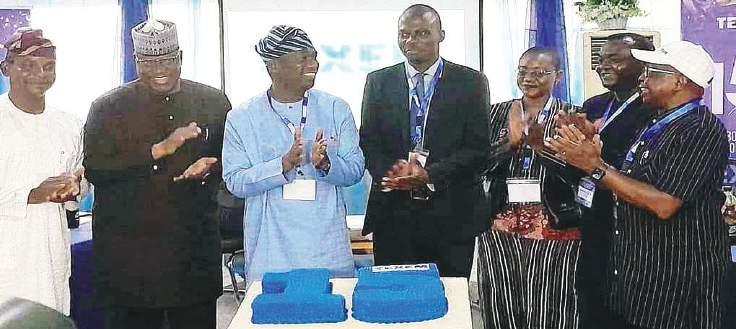
L-R: Commissioner for Basic Education, Hon. Jamiu Ali; Chairman, Channels TV, Mr. John Momoh; Deputy Governor of Lagos State, Dr. Obafemi Hamzat; Founder and Chair, TEXEM UK, Dr. Alim Abubakre; Food and Beverage Manager, The Wheatbaker, Mrs. Salome Danjume; Chief Executive Officer, Cakasa, Mr. Barnabas Oliseh; and Chief Executive Officer, AG Mortgage Bank, Mrs.
at the 15-year TEXEM anniversary celebrated with public secondary school students in Lagos State…recently
Adedayo Akinwale in Abuja
Newly appointed National Chairman of All Progressives Congress (APC), Professor Nentawe Yilwatda, has dismissed fears that the new coalition party, African Democratic Congress (ADC), and other opposition
parties may unseat President Bola Tinubu in 2027.
Yilwatda spoke yesterday in Abuja while addressing APC supporters under the umbrella of APC League of Professionals, who came on a solidarity visit to the national secretariat of the party.
He said the party would ensure the victory of all its candidates contesting for governorship, National, and state Assembly seats across the country.
Yilwatda stated that the achievements recorded under the Renewed Hope Agenda of the Tinubu administration were the basis for his
assertion. He cited the students’ loan scheme and several empowerment programmes being undertaken by the current administration that had positively affected the citizenry.
Yilwatda stated , “The child of the poorest man in Nigeria can now go to school to the peak without borrowing
The Ohanaeze Ndigbo Worldwide, has dismissed reports that it advised Peter Obi to withdraw from the 2027 presidential race.
The group also refuted allegations that it urged northern leaders not to support Obi’s presidential ambition.
This was as Obi, has again, cried out at the alleged reckless borrowing by the President Bola Tinubu administration without accountability.
In a statement by its National Publicity Secretary, Dr. Ezechi Chukwu, Ohanaeze described the claims as acts of mischief by “street urchins”.
According to it, “Ohanaeze Ndigbo Worldwide has been alerted to a misleading report circulating
gov hits Tinubu again
on social media alleging that the apex Igbo body warned Mr. Peter Obi against contesting the 2027 presidential election.
“It also claimed that Ohanaeze cautioned the North against backing his candidacy. We wish to categorically state that such a mischief-driven and misleading statement did not emanate from the dignified apex Igbo body.”
It noted that the statement was the handiwork of a group he described as “clandestine starving street urchins who parade a phantom, ludicrous brown-envelope Ohanaeze, with POS as their address.”
He emphasised that Ohanaeze Ndigbo, under the leadership of credible figures such as Senator John
Azuta Mbata (President-General), Prince Okey Nwadinobi (Deputy President-General), and Emeka Sibeudu (Secretary-General), could not have issued such an ‘ignominious’
“Ohanaeze Ndigbo is committed to the wellbeing of the Igbo nation and national development through justice, fairness, and equity. We remain non-partisan and have not taken any position on the 2027 presidential election or endorsed any candidate.”
The group urged the media and the public to disregard statements from “incurable mercenaries unconscionably parading the Ohanaeze brand to execute the pecuniary bidding of their political paymasters.”
In a related development, Obi,
Sunday Aborisade in Abuja
The Senate, through its Committee on Diaspora and Non-Governmental Organisations (NGOs), has called for calm and restraint following a viral video showing a protest by some Ghanaians demanding the deportation of Nigerians over alleged misconduct.
The video, widely circulated on social media, captured protesters in Ghana accusing Nigerians of behaviour they claimed was incompatible with Ghanaian norms.
Reacting in a statement, late last
night, Senator Bassey Aniekan, condemned the blanket criminalisation of Nigerians and described the rising hostility against them as disturbing and unjust.
The Senator maintained that Nigerians were, for the most part, law-abiding, hardworking, and productive citizens who were contributing positively to their host communities around the world.
Part of the statement read: “While we cannot deny that bad eggs exist in every society, it is wrong to criminalise an entire nationality based on the
actions of a few. Nigerians abroad are, in many cases, good ambassadors of our nation.”
Aniekan emphasised the importance of preserving the long-standing relationship between Nigeria and Ghana, noting that both countries had historically shared deep diplomatic, economic, and cultural ties.
He called on both nations to honour their commitments under the Economic Community of West African States (ECOWAS) protocol, which encouraged regional integration and the free movement of people.
has, again, cried out at the alleged reckless borrowing by the Tinubu administration without accountability.
In a statement by his media aide, Ibrahim Umar, Obi said by the latest loan approval by the Nigerian Senate for another external borrowing of $21 billion, €2.2 billion, ¥15 billion for the 2025–2026 fiscal cycle, Nigeria’s debt now stood at N187 trillion with fear that it might climb to N200 trillion before the end of the year.
Writing on his X handle, Obi said,
“On July 22, 2025, the Nigerian Senate approved an additional $21 billion, €2.2 billion, ¥15 billion of external borrowing for the 2025–2026 fiscal cycle. It also approved a N750.98 billion domestic bond issuance and a €65 65million grant.
from anywhere. The government has made provision for that. This is the only time we’ve had that in the history of Nigeria.
“The government has dropped N1.5 billion into the Bank of Agriculture (BOA) to support young men, who want to go into agriculture.
“Never before have we had this opportunity. We have the youth fund being given to the youth. Never before has any government done this. And I can tell you that the opportunity for the young people is right under our President.
“What I can show you first is a thank you for this support, a thank you for standing by our party, and a thank you for believing in this party.
“Our manifesto targets people like you. The Renew Hope Agenda targets people like you. And I look forward to working with you to ensure that 2027 will deliver the president, the governors, the senators, the Houses of Assembly, and the House of Representatives members.”
The pioneer secretary of the Bayelsa State chapter of APC, Hon. Marlin Daniel, expressed gratitude to Tinubu and the Hope Uzodinma-led Progressive Governors’ Forum (PGF) over the choice of Yilwatda as the national chairman of the party.
Daniel expressed optimism that Yilwatda would deliver candidates of the party at the polls, given his experience as a politician and technocrat of several years standing.
Meanwhile, members of Plateau
State House of Assembly threw their weight behind the re-election of Tinubu in the 2027 general election. Speaker of the Assembly, Hon. Naanlong Daniel, stated this while addressing journalists yesterday in Abuja.
Daniel, who was flanked by 21 members of the House on the platform of APC stated that with the appointment as the national chairman of the party, all those aggrieved with APC due to religious and primordial interests had buried the hatchets. He said they would give Yilwatda the maximum support, adding, “We hope with what has happened it will go a long way in changing the narrative, particularly as we move forward towards 2027.
“And I’m sure that some of the sentiments that were escalated, by virtue of the new appointment, it has addressed most of those unending aspirations that our people were driving.
“Concerning Mr. President on the Plateau, we don’t even know whether there is any other party, because even the party that you would not even expect to campaign for Mr. President are already campaigning for him.
“Any presidential candidate or aspirant who wants to contest under any party coming to Plateau is just coming to waste his resources because there is already a consensus on the ground that Mr. President is going to be the sole candidate. Plateau State will stand by Mr. President.”
Kemi Olaitan in Ibadan
Oyo State governor, ‘Seyi Makinde, yesterday received the governor of Ogun State, Prince Dapo Abiodun, with the two states working to strengthen ties in the economic, agriculture and security sectors. The two governors met behind closed doors.
But Prince Abiodun, while addressing journalists shortly after the meeting, said his discussion with his Oyo State counterpart centred on issues of mutual interests and importance, stressing how both states share strong
historical, cultural and economic ties.
It would be recalled that Governor Makinde had paid a similar visit to the Ogun State governor, where he said the two states would embark on peer reviews, which would see them draw strengths from each other’s areas of comparative advantage.
Speaking with journalists, Governor Abiodun said, “Ogun State proudly remembers that the Old Western Region, where Ibadan was the capital, is where it evolved from.
“So, we have ties, very strong ones at that; cultural, historical, and
of course, economic ties with the people and government of Oyo State.
“Today, I have come to see my brother, His Excellency, Governor Seyi Makinde, to discuss such matters of mutual interests and importance.
“You can see that every day in our sub-region we continue to host major investors. And, we are contiguous to Oyo on so many fronts.
“A time like this has presented itself for us to look at how to ensure that we strengthen that economic relationship. So, we have potential investors in the agriculture sector.

Former Senate President and chairman, Reconciliation Committee of the Peoples Democratic Party (PDP) Dr. Abubakar Bukola Saraki, yesterday, convened a meeting of party stakeholders behind closed doors across the 16 local government council areas of Kwara State in view of the alleged threat posed by the opposition African Democratic Congress (ADC).
At the same time, the PDP has said the attack against it by the ADC was unprovoked and would not be condoned.
The meeting held at the Saraki country home, GRA, Ilorin, THISDAY gathered might not be unconnected to the recent formation of the ADC in the country, the PDP voters registration and other political developments in the country.
Those in attendance included a former national chairman of the PDP, Alhaji Abubakar Kawu Baraje; national legal adviser of the PDP, Mr. Kamaldeen Ajibade, SAN; the state chairman of the PDP, Hon. Babatunde Mohammed; former speaker of the state House of Assembly, Prof. Ahmad Ali; former Chief of Staff Government House, Alhaji Ladi Hassan; Engineer Kale Kawu Agaka and a board of trustee of the party, Allhaja Nimota Ibrahim. Others were the party’s chairmen in the 16 local government councils, PDP three senatorial chairmen, women, youth leaders among others.
Addressing the stakeholders, Saraki said the event served as an
ning of a new NEC session, but the dawn of a new chapter in ADC; a chapter that we must write together with courage, unity and conviction.
“I wish to acknowledge the hard work, patriotism, sacrifices and dedication of Hon. Ralph Nwosu and his team, who over the years built this party and were relinquishing leadership to our team in the interest of this country.
“Our leaders and all loyal members who contributed in any way to the growth of this political family also deserve our commendation.
“I assure you that under my leadership, we shall be committed to full democratic practices and principles that abhor imposition and special privileges. Internal democracy, transparency and accountability will be our mantra.”
The former senate president added, “We will guarantee collective leadership at all levels. We will build a technically competent bureaucracy for the party and ensure a structured
opportunity to speak with the people as family members.
“I’m here as a democrat, whose people have asked to clarify a number of issues about the party. You have all been observing what’s been happening at the national level of our party and you want to know the situation. I owe you that to come down and explain to you.
“Number two, you’re all aware of innuendo that has been given about what I know and what I don’t know. I believe I must come and let you hear from the horse’s mouth, so you can know true position of the matter,” he said. Saraki, however, noted that, he didn’t ask anyone to go to ADC in the state.
Speaking earlier, the PDP chairman in the state, Hon. Babatunde Muhammed, who was direct in his statement told the party members that the PDP was not part of any coalition in the country.
“The PDP is intact in Kwara State. PDP is the only opposition party in the country. There’s no other opposition. And PDP has nothing with coalition and we will win in next general elections,” he said. Meanwhile, the national leadership of the PDP has said the attack against it by the ADC was unprovoked and would not be condoned .
In a statement by its National Publicity Secretary, Debo Ologunagba, the PDP said, ‘’This unwarranted resort by Bolaji Abdullahi, an individual known for his roles as chief image maker and defender of the lying, deceitful, corrupt and failed All Progressives Congress (APC),
financing. All members will truly own the party.
“We will be fair and just to all party members. We promise to be totally transparent. ADC will have zero tolerance for anti-party and other forms of indiscipline.
“We shall revamp our grassroots leadership structures to reflect modern realities. From the polling units, wards up to the national level, every organ will be re-energised.
“We will open the gates for the next generation. Our policies, nominations, and leadership roles will reflect meaningful inclusion of youths and women and not just tokenism.
“This is why we have reserved 35 per cent of our leadership positions for women. It is also our commitment to have youths below the age of 40 years in our leadership.”
Mark stated, “Within the shortest possible time, the NWC will raise committees to review the manifesto and the constitution of our party to
to use the platform of the ADC to attack the PDP instead of addressing serious national issues is not only reckless but also revealing.
‘’It is rather unfortunate that the APC-indoctrinated Abdullahi is apparently unhappy that the PDP is building momentum against the APC
ahead of the 2027 general election hence this resort to attacking the PDP instead of confronting the APC.
‘’In any case, the PDP, as the leading opposition Party, commanding the respect, loyalty and solidarity of overwhelming majority of Nigerians across the country and which is also
the broad-based platform driving the aspiration of Nigerians to oust the APC in 2027 will not descend to join issues with the ADC or any other opposition Party in the country for that matter.
‘’Instead, the PDP, with its track record of performance which Nige-
rians still recall with nostalgia will continue to vigorously challenge the failed APC on issues while shaping constructive national discourse and galvanizing Nigerians towards voting out the APC and installing a people-oriented government on the platform of our Party, come 2027.’’
Says Kwankwaso is right, Tinubu marginalising north Lukman warns opposition leaders against imposition, godfatherism
A former Secretary to the Government of the Federation (SGF), Babachir Lawal, has stated that all elected officials in the North, including governors seeking reelection, would not be re-elected unless they join the opposition African Democratic Congress (ADC).
Speaking in an interview, Lawal said the ruling All Progressives Congress (APC), has destroyed and marginalised the North, adding that most elected officials in the North would be left with no choice but to defect to the ADC ahead of the 2027 general election.
“Which northern elected official will go to campaign on the platform of the APC this coming election?
meet and reflect the aspirations of the Nigerian people.
“We shall clearly articulate what we stand for. Nigerians must know us as a party driven by unblemished ideology, progressive policies, and patriotic governance. We will not leave it to the discretion of individual candidate to choose what to do with power.
“Therefore, in the coming days, we shall announce a 50-Member Policy Committee to cover health, education, agriculture, technology, security, economy, infrastructure and other services.
“This underlines ADC’s focus in achieving good governance for Nigerians.
“Finally, we invite all Nigerians to join our party. ADC is the only party that guarantees equal opportunity to everyone regardless of age, gender, religion or region. Our handshake is across all divides.”
Nobody. Unless ab initio, you have no plan to win election. I can’t see anywhere,” he said.
Asked if his claim applied to governors seeking re-election, he said, “Unless they join the ADC, they will not win…simply because they belong to a destructive party. A party that woefully failed to perform.”
The former SGF said most northern governors would have to join the ADC if they intended to contest the election, revealing also that the opposition party has already discussed with some of the governors
Lawal echoed Rabiu Kwankwaso’s criticism of President Bola Tinubu’s administration, alleging deliberate neglect of northern Nigeria in terms of infrastructure development.
“Every Nigerian that has anything to do with the north will know that no infrastructure work is going on at any level.
“No projects are going on at least they are not visible to the eye. Maybe in their imagination, maybe in the spirit but we don’t see it.
“We don’t see any construction work. We don’t see any infrastructure going on. No federal government project whatsoever,” he said.
Lawal defended Kwankwaso’s earlier assertions about neglect, noting that both he and the former Kano governor shared a technical background that makes them attentive to physical development.
In a swift rebuttal, Minister of Works, David Umahi, had dismissed Kwankwaso’s argument, calling it “misleading and unfair to the president”.
According to Umahi, 52 per cent of the total stretch of Tinubu’s key road initiatives lies within the northern part of the country, including a major section of the Sokoto–Badagry superhighway which covered 756 kilometers were in the north.
Backing Umahi, presidential media aide, Sunday Dare, also defended the administration, insisting that more than 40 key projects and programmes were either ongoing or had been maintained across northern states.
He, however, dismissed the allegations as politically motivated.
Lukman Warns ADC Leaders Against Imposition, God-fatherism One of the arrowheads of the opposition African Democratic Congress (ADC), Mallam Salihu Lukman, has warned the leadership of the party against god-fatherism and imposition among the leaders at all levels ahead of the 2027 elections. Lukman, in a statement titled: “ADC and the Prospect of Internal Democracy” cautioned the leaders of the party that Nigerians would not be deceived by any cosmetic design of presenting another party, which is only a duplicate of their old parties.
The former National Vice Chairman, North-west of the APC, expressed fears that with the way things were going, coalition leaders would emerge as godfathers, and subsequently impose their surrogates at all levels as leaders of the ADC.
IMF Upgr AD e S N I ger IA’S 2025 g row TH oUT look To 3.4%, 3.2% F or 2026 a narrow mandate to pursue price and economic stability, are essential to anchoring inflation expectations.
“That central banks around the world achieved a successful ‘soft landing’ despite the recent surge in inflation owes a great deal to their independence and hard-earned credibility.
“Restoring fiscal space remains a priority for many countries. Even where new spending needs are emerging, efforts must be made to implement gradual and credible consolidation while protecting growth.
“Lastly as global growth remains tepid, more efforts must be made to increase long-term productivity through structural reforms, Gourinchas said.
Meanwhile, Rewane has emphasised the need for Nigeria to resolve its
lingering power supply issues, saying continued outages pose a significant threat to national economic growth.
Rewane made the call yesterday when he appeared on a national television.
Rewane stressed the impact of sustained power outage on Nigeria’s GDP, especially in key economic hubs like Lagos and Ogun States.
“There is the opportunity cost, and there is a cost. The cost is that Lagos and Ogun States may constitute about 30% of Nigeria’s GDP. So, if you’re going to have one month of power outage, the impact is effectively one-twelfth of 30 percent—which is significant,” he said.
According to him, Nigeria’s power challenges are deeply rooted and multi-dimensional, citing issues
such as cultural barriers, tariff imbalances, underinvestment, and debt forbearance within the sector.
“You cannot grow the economy with what we’ve seen today without a broad power solution. If there is a power outage in Nigeria, it must be resolved—no question. You can’t put a Band-Aid on it. It has to be done, and it has to be done now,” he added.
Speaking on economic performance, the expert stated that the economy recorded a 3.13 percent growth in the first quarter of the year. He also observed shifts within the economy, noting that manufacturing’s contribution has declined, while agriculture has grown in visibility, and the service sector remains the primary driver of economic activity.
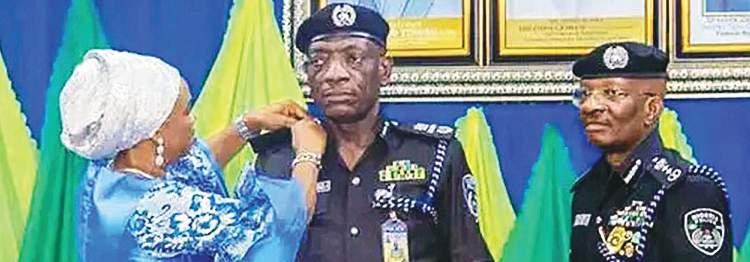
Oyo State Commissioner of Police, Mr. Johnson Oluwole Adenola, now Assistant Inspector General of Police (AIG), being decorated by his wife, Mrs. Adeola Adenola, closely watched by the Inspector General of Police, Mr. Kayode Egbetokun, yesterday
Addeh
As the debate over the legality of electricity tariff cut by the Enugu Electricity Regulatory Commission (EERC) continues, the Minister of Power, Chief Adebayo Adelabu, yesterday met with energy commissioners from the sub-nationals in a bid to resolve the pending issues.
At the event which took place in his office in Abuja, Adelabu reiterated the need for sustained collaboration with state governments
elite than with the broader needs of the country, especially the north, was baseless.
In his intervention, the NSA, Ribadu, listed the achievements of the Tinubu government in the area of security, noting that now, Nigerians, especially people from the north can move around unlike before Tinubu took over.
“President Tinubu told us to come and present ourselves before you, and we are here. And to also once again give you the assurance that Nigeria is in good hands, that we will work, that we will restore order, we will bring stability to our country, we will give our people their lives back”, Ribadu said.
Ribadu, alongside, heads of security agencies in the country in a major highlight of the two-day event, made a solemn pledge to end insecurity nationwide, listing the giant strides already achieved in the Niger Delta and in the south-east.
“We stand before you to give you this commitment, that we assure you that Nigeria is in good hands, and we will restore order. It’s a commitment. But at the same time, we ask for your patience. We ask for your support. We need your support. We need to do it together as one. But take it from us that we will deliver this assignment,” he stated.
He listed the attacks on Brigade of Guards under Muhammadu Buhari, attacks on train passengers, and the attacks on prisons in Abuja as some of the major incidents that happened before Tinubu took over, stressing that though the criminals continue to try, their attempts are being thwarted by Nigerian security forces.
In his intervention, the Chief of Defence Staff (CDS), Gen. Christopher Musa, noted that Nigeria has moved from where it was in terms of the fight against insecurity, maintaining that with collaboration with neighbouring nations, Nigeria was winning the war.
“Since the assumption in 2023, the Armed Forces of Nigeria and other security agencies, based on
to prevent regulatory fragmentation in Nigeria’s electricity market.
Adelabu, while briefing the commissioners, warned that uncoordinated actions by sub-national governments could destabilise the national grid and deter private sector investment, describing the national electricity market as an interconnected system.
He argued that any misalignment or uncoordinated action at the sub-national level could weaken grid stability, disrupt power supply to
presidential directives, through a strategy of jointness…has clearly defined leadership concepts that are hinged on professionalism, jointness, people-centrism, and collective actions.
“We understand that as security agencies, wherever we are protecting, if the people are not happy with what we are doing, then we are not succeeding. And so, whatever we want to do, we have told our commanders, they must ensure they carry the people within the communities, they must protect them. It is not to harm anybody. We are only after the bad guys,” Musa stated.
He added: “We are doing everything possible to ensure that we position our men properly so that they can react. With a land size of over 923,000 square kilometers, Nigeria is massive. With our population, with our strengths, we cannot be everywhere.
“But we have Nigerians all over. And that’s why it’s important for every Nigerian to also be part of the security architecture. Whatever you see that is wrong, please don’t hesitate to report so that actions can be taken.”
Chairman of the Board of Trustees (BoT) of the Arewa Consultative Forum (ACF), Alhaji Bashir Dalhatu, in his remarks, accused Tinubu of sidelining the north despite the massive support he got from the region during the 2023 elections.
Dalhatu recalled that on October 17, 2022, an interactive session was held in Kaduna with presidential candidates of leading political parties including Tinubu, who made promises to address the challenges facing the north.
“In that meeting, we presented to Asiwaju Bola Tinubu, a written address containing details of the issues of urgent concern to the people of Northern Nigeria. In turn, he gave us his own written document containing details of the issues he believed were of concern to the north and how he intended to address them...” he said.
Dalhatu said northerners went out in their numbers on February 25, 2023, and cast their ballots for Tinubu.
neighbouring states, and undermine investor confidence.
The minister acknowledged that states under the Electricity Act 2023, have constitutional rights to establish and operate their electricity markets, but stressed the importance of aligning with the federal framework, particularly in areas such as grid operations and wholesale electricity trade.
“While we fully respect the constitutional rights of states to determine how their electric-
According to him, 5.6 million out of the total 8.8 million votes garnered by Tinubu in the election were from the north.
“And yet, two years into the four-year tenure of President Tinubu, the feeling among the people of the north is, to put it mildly, completely mixed. To our surprise, those who did not support him, did not vote for him and hardly wished him well, have emerged from nowhere and are trying to push a wedge between him and the north.
“Whether or not they are succeeding, we do not know. But we can not pretend not to observe that President Tinubu’s budget priorities, his infrastructural projects, his appointments, and other executive actions have, over the last two years, largely sidelined northern Nigeria”, the ACF BoT chairman said.
He accused the president of allegedly doing little or nothing to address the major issues of concern to the north.
Dalhatu said the biggest challenge facing the north, is insecurity, pointing out that “Over the last decade, widespread violence, characterised by massacres, bombings, cattle rustling, kidnapping and other manifestations of conflict and insecurity has swept across Northern Nigeria, crippling almost all productive economic activities and social progress”.
He added: “Even as we speak, this crisis shows no signs of abating. The insurgent groups continue to multiply, their attacks becoming more deadly. With the possible exception of Kaduna and Bauchi states, the terror level everywhere in the North has continued to rise with each passing day”.
Dalhatu said unless the government takes decisive, strong, audacious and sustained measures, including the ones that address its root causes, particularly joblessness among the youth and deepening poverty, the insecurity crisis in northern Nigeria will not be contained.
He said that Tinubu needs to
ity markets should evolve, it is equally critical to involve the federal government, particularly as the custodian of the national grid and wholesale market to ensure that market developments at the State level do not inadvertently disrupt the stability and efficiency of the entire sector.
“The national electricity market is an interconnected system that depends on coordinated generation, transmission, and distribution operations across state borders. Any
demonstrate to the northern public that he is truly concerned with the raging conflict and is determined to bring it to an end.
“The federal government’s budget priorities, infrastructural projects, investments and even social services have been openly skewed against northern Nigeria. This discriminatory practice is not done secretly, it is splashed directly into our face - openly and frankly and without the need for apology,” he said.
According to him, an unhealthy mixture of sectionalism, partisanship and cronyism has followed most of Tinubu’s actions and policies.
“It is true in policy decisions as it is true in appointment and deployment of personnel in the departments of the federal government. Over the last two years, since President Tinubu has been in power, the ACF has released a number of press statements criticising some of his actions or lack of them.
“But we have also acknowledged and commended some decisions we felt would serve Nigeria well. Clearly, our criticisms are not borne out of mischief,” he added.
Also speaking, the Governor of Kaduna state, Uba Sani, who hosted the event, observed that Tinubu has done well for the north, explaining that electoral pledges are not campaign rhetoric to be conveniently forgotten after votes are tallied, but solemn covenants, expression of aspirations, hope, and obligation.
“Two years ago, this foundation brought before you leading presidential candidates, among them His Excellency Aswaju Bola Tinubu. He addressed you not with empty praises, but with vision, a renewal of integration, and rapid development, especially for Northern Nigeria.
“The question is unavoidable. Has President Tinubu honoured the pledges he made? As the governor of Kaduna State, former senator, and a proud son of the north, I offer this response not from a point of political partisanship, but as one engaged in the journey of regional transformation.
misalignment or uncoordinated action at the subnational level can create technical, commercial, or regulatory conflicts that weaken grid stability, disrupt power supply to neighbouring states, and undermine investor confidence.
“By working together and ensuring alignment, we can safeguard the integrity of the national grid, optimise resources, and provide reliable and affordable electricity to all Nigerians, regardless of where they live,” he stated. He urged the subnational governments to prioritise the electrification of unserved and underserved communities within their states, expanding access for those who need it most, noting that this remains a central pillar of Nigeria’s national electrification agenda.
Adelabu reiterated the importance and the need for strong regulatory alignment and synergy across the entire electricity value chain, explaining that the common goal is to ensure that every Nigerian, regardless of location, has access
to reliable electricity that powers homes, businesses, industries, and drives our collective economic growth.
“To achieve this, regulators at the federal and state levels must work hand in hand to harmonise standards, coordinate frameworks, and provide investors with clarity and confidence in the stability of the market.
“A fragmented regulatory environment, where different rules and standards apply without alignment, creates uncertainty for investors and operators alike. It can lead to disputes, inefficiencies, duplicated efforts, and conflicting obligations that ultimately slow down sector development.
“By maintaining strong regulatory cooperation, we can create a level playing field, attract more private sector participation, protect consumers, and ensure that everyone is working towards the same vision of a modern, efficient, and inclusive electricity sector that supports Nigeria’s economic ambitions,” he added.
Chuks Okocha in Abuja
The Labour Party has slammed President Bola Tinubu for giving dollar gifts to the victorious female national team, the Super Falcons, stating that the gifts ought to be in Naira.
In a statement by media aide to Senator Nenadi Usman, Ken Asogws said, the Labour Party said,
‘’It is utterly shameful that President Bola Ahmed Tinubu, the nation’s foremost custodian and presumed chief ambassador of the Nigerian Naira, chose to reward our gallant Super Falcons in United States dollars.
‘’Watching the president, on national television, announce that the victorious Super Falcons would receive financial rewards ‘equivalent to $100,000’ was not only nauseating but deeply unpatriotic.
“Even if, as some may argue, he meant the Naira equivalent, the symbolic elevation of the dollar over our national currency by the Commander-in-Chief is a damning indictment of his administration’s economic mindset.
‘’This act speaks volumes about the level of disdain and lack of faith this government has in the Naira -
the very symbol of our economic sovereignty. Perhaps, at this rate, we should expect the national budget to soon be presented in dollars, or worse still, in a basket of foreign currencies.
‘’The Tinubu administration, having supervised the free fall of the Naira – from an already precarious N500 to over N1,500 to the dollar – appears to have thrown in the towel.
“A president, who openly shies away from promoting his national currency sends a dangerous message to the world and to his citizens: that the Naira is not worth defending.
‘’It is no surprise, therefore, that the World Bank, in its latest review, listed the Naira among the worstperforming currencies in Sub-Saharan Africa - depreciating by approximately 43% year-to-date.
“This has been attributed to surging demand for the US dollar and an eroded confidence in the Naira, the actual practice the president has been busy abetting.
‘’When the highest office in the land sets such a tone, what moral ground do we stand on to call on others to have faith in our currency?
If this is not patriotism in reverse, then what is?’’
Olawale Ajimotokan in Abuja
Still in the euphoria of Nigeria’s triumph at the just ended Women’s Africa Cup of Nations (WAFCON) in Morocco, Captain Rasheedat Ajibade, has declared that the
10-time continental champions Super Falcons are now looking forward to winning the FIFA Women’s World Cup
A well-known estate developing company, Jedo Investment Company Ltd, has donated plots of land worth 400 square metres each, within the Federal Capital Territory, Abuja to Super Falcons’ goalkeeper, Chiamaka Nnadozie, and reigning Africa Player of the Year, Ademola Lookman. The land is situated inside the Jedo Mega Estate in Ushafa, Abuja.
In a letter signed by its General Manager (Human and Business Relations), Anthony Onwuma, Jedo Investment said it was “particularly inspired” by Nnadozie’s performance as Super Falcons’ goalkeeper at the recently-concluded 13th Women’s Africa Cup of Nations in Morocco. “Your efforts not only helped secure the championship but also served as a shining example of dedication and excellence for millions of Nigerians and football lovers around the world.”
With regards to Lookman, the reigning Africa Player of the Year, the company noted: “Your outstanding performance, resilience, and excellence on the pitch have not only brought immense pride to Nigeria but have also cemented your position as one of the finest in the world today. Your achievement is a testament to hard work, discipline, and an unyielding commitment to excellence values that resonate deeply with our brand.”
Nnadozie, who is also the reigning Africa Goalkeeper of the Year (retaining the title she won in 2023), was selected as the Best Goalkeeper of the 13th Women AFCON, and has had a fabulous past three years at club level in Europe.
Both star players have been offered the position of Brand Ambassadors for Jedo Investment company.
The management of Zenith Bank Plc, sponsors of the national women’s premier basketball league, has charged the Nigeria Senior Women’s Basketball Team, D’Tigress, to go ahead and clinch the AfroBasket title once more.
D’Tigress opened their campaign in the ongoing AfroBasket tournament in Abidjan, Côte d’Ivoire with a 92-45 win over Rwanda. The team, under the tutelage of Coach Rena Wakama, also went ahead to pip Mozambique 65-60 in a very tight encounter on Monday to qualify for the quarterfinals of the tournament.
The two games have placed Nigeria in the quarterfinals where D’Tigress will play either Angola or Cameroon on Thursday depending on the final placing of the two teams in their group.
Following their impressive performances so far, the Chief Executive Officer and Group Managing Director of Zenith Bank, Dame Adaora Umeoji, said the blistering start of
the team was heartwarming.
Umeoji said: “We have been monitoring the progress of the team with keen interest and it was a special feeling that the MVP in our annual Zenith Bank League, Murjanatu Musa, was a standout player in the first match. The resilience displayed in the second match was also great and it was a good display to show they are champions.
“From the quarterfinal stage, the battle will be tough but we trust you girls to display the Nigerian spirit and go all the way to win the title again. We are always proud of you because over the years, many of you abroad also featured in the Zenith Bank League. This is our prime sports event and we are excited that you are making us proud.”
After the training session yesterday in Cote d’Ivoire, one of the players, Ifunaya Okoro, said the team would continue to file out and give its best in all the game of the 2025 FIBA AfroBasket tournament.
Last Saturday night in Rabat, the Super Falcons fought back from being two goals down to beat hosts Morocco 3-2 and claim a 10th WAFCON crown.
The Falcons have featured in all nine editions of the Women’s World Cup with their best performance being reaching the quarterfinal in 1999.
Two years ago, at the World Cup in Australia and New Zealand
they stretched two-time European champions England to a penalty shootout in the second round.
MVP of the 2024 WAFCON Ajibade has now said the team can aim for the biggest prize in women’s football in the world, the World Cup.
“We are not content to rest on our laurels. Our vision is bold. We want to become the best women’s football team in the world,” a bullish Ajibade declared to reporters shortly each player of the team received a promise of $100,000 plus a three
bedroom and national honour from President Bola
the
Abuja.
“Let us inspire a mindset that sees no limit, that dares to dream big and that unites in pursuit of excellence.
“With the right support and with the right condition, we can have the same playing field as our competitors.
“The Super Falcons are ready to soar higher and the sky is just the beginning.” Ajibade and three other Super

Zaria Court Kigali officially opened its doors last night with a landmark launch event, marking a defining moment for African urban infrastructure. The flagship $26 million mixed-use development is the first from Zaria Group, Africa’s leading developer of sports, entertainment and cultural infrastructure, which NBA Champion Masai Ujiri cofounded in partnership with Helios Sports and Entertainment Group.
The grand opening welcomed hundreds of dignitaries, cultural leaders, international guests and youth advocates to celebrate the launch of the continent’s new
The historic town of Ilesa would be bursting at the seams next month when maiden Summer Holiday Football Training holds between August 4th and 29th under the auspices of El-Roi International Football Academy. According to one of the organisers of the programme, Coach Siji Lagunju, a former Nigeria International, the programme would be segmented into three categories for boys and girls between the ages of 8 to 2; 12 to 15 as well as U-17 youngsters.
The vastly experienced Lagunju who was for many years Deputy
National Director at the Nigeria Football Federation(NFF), said the programme has been designed to cater for the needs of youngsters desirous to take football as a career, adding they would be availed the knowledge and training of carefully chosen coaching experts.
“ We are putting together this Summer Football Training in order to encourage the development of raw talents from the grassroots in Ilesha and its environs ,” said Lagunju, a dribbling wizard in his heyday with notable Nigerian clubs including ICC Shooting
Stars, the defunct Leventis United, International Breweries ( Ilesa) Bendel Insurance, Iwuanyanwu Nationale and Stationery Stores.
The holder of a CAF Pro License added: “For as little at Ten Thousand Naira, the children who will be part of this program in Ilesa would be put through the rudiments of the game and so much more.
“Part of my calling is discovering of raw talents and I want to use this opportunity to tell parents in Ilesa to bring their wards for this programme, they won’t regret it,” concludes Lagungu.
premier destination for sports, culture, and community.
Held adjacent to Kigali’s iconic BK Arena and Amahoro Stadium, the evening featured remarks from key stakeholders and welcomed notable attendees, including Aliko Dangote, Chiney Ogwumike, Amadou Gallo Fall, Robin Roberts, Michael Blackson, Fred Swaniker, and Clare Akamanzi.
The event showcased Zaria Court’s mission to create vibrant cultural districts that serve Africa’s growing middle class, creatives, and next-generation entrepreneurs.
“Today marks more than the opening of a building – it’s the beginning of something transfor-
mational. Zaria Court represents everything we’ve dreamed of: a place where African excellence takes centre stage, where our youth see unlimited possibilities, and where culture and community thrive together. This is our vision for the continent’s future – bold, authentic, and unapologetically African. We’re not just building venues; we’re building the foundation for Africa’s cultural renaissance, because we know that courts create communities, venues create value, ecosystems create economies,” said Masai Ujiri, Co-Founder and Partner of Zaria Group.
Zaria Court Kigali is the first physical manifestation of Zaria
Group’s arena ecosystem strategy – a proven global model now adapted for Africa’s unique cultural and economic landscape. The entire district is specifically designed to serve Africa’s young, urban population while creating sustainable economic opportunities, featuring:
•An 80-room boutique hotel and 2,000-person event space
•A podcast studio and creative co-working space
•Public basketball court, five-aside football pitches, and a fitness gym
•A curated selection of restaurants, a sports bar and retail outlets
•Public open space, including a playground for children.

Inter Milan’s quests to have Ademola Lookman switch to San Siro is facing a small delay following Atalanta’s insistence on not going to allow their prized Nigerian jewel walk away from Bergamo without his €50million transfer fee paid . Following that move, Inter Milan President who thought he has secured the transfer of the Nigerian forward, has now issued an ultimatum as it concerns Lookman’s transfer.
Inter President, Beppe Marotta,said yesterday that the transfer has to be sorted out in
“two or three days”, according to the French all-sports newspaper L’Equipe.
Ademola Lookman has agreed a five-year contract with Inter, which more than doubles what he earns at Atalanta.
However, negotiations between Inter and Atalanta have stalled with the player’s club insisting on a transfer fee of 50 Million Euros but Inter are only willing to pay €45m.

“One must be a fox to recognize traps, and a lion to frighten off wolves. Those who simply act like lions are stupid.”
This quote, attributed to Niccolò Machiavelli—the Italian philosopher and author of The Prince, one of the most influential treatises on political leadership—aptly captures the current dynamics of Nigeria’s political landscape as the race toward the 2027 general elections intensifies.
President Bola Ahmed Tinubu, who is seeking re-election in 2027, appears to be playing the role of the fox—working strategically behind the scenes to position the All Progressives Congress (APC) for continued dominance. In contrast, those behind the newly energized political platform, the African Democratic Congress (ADC), have been loudly positioning themselves as the lions—determined to remove Tinubu from office through the ballot box in 2027. In the context of Machiavelli’s analogy, that makes them the lion, while Tinubu remains the calculating fox.
And here’s why.
About four weeks ago, at the Yar’adua Center in Abuja, the ADC announced its emergence as a reinvigorated opposition force. What occurred was, in business parlance—though not officially labeled as
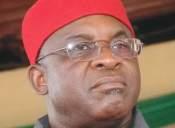
such—an acquisition rather than a merger, which was the model used in the formation of the APC. In ADC’s case, a significant number of political heavyweights from various opposition parties chose to join the existing ADC structure, which has been around since 2006 when it was founded rather than dissolve their parties entirely into a new platform.
This is a different approach from February 2013, when three major parties—ACN, CPC, and ANPP—along
with a splinter faction of the then-ruling PDP (nPDP), merged to form the APC. The current ADC reformation, however, is being powered by politicians who have been displaced from their former comfort zones (some of whom are founders of the very parties they have now abandoned). These individuals have now found a new home in ADC and hope to stage a political comeback through it.
Clearly, just as APC was the vehicle that led it to victory in 2015, the new-look ADC aspires to replicate that feat in 2027. However, life is dynamic, and past strategies may no longer be sufficient for tackling present-day challenges. Attempting to replicate APC’s 2015 strategy may be akin to going into modern warfare with bayonets and arrows while the adversary is armed with drones and stealth bombers.
Unless the coalition forming around ADC has more advanced and undisclosed strategies, it appears likely that they will make a splash—but not a dent—against a ruling party that has planted seeds of policy and infrastructure that are beginning to bear visible fruit.
One key distinction between the APC’s emergence ahead of the 2015 elections and ADC’s current positioning for 2027 lies in the method of formation. While APC was created through a formal merger, ADC’s new posture stems from what amounts to

a political acquisition of an existing party—one that was already a going concern. Initially, the new opposition coalition had contemplated launching a fresh platform—tentatively named the African Democratic Alliance (ADA). But in a move that surprised many Nigerians, they opted instead to persuade ADC’s leadership to hand over the reins of the party to them.
Given the unfolding crisis within the Social Democratic Party (SDP)—which recently expelled former Kaduna State Governor Nasir El-Rufai and imposed a 30-year ban just months after he publicly joined the party—one is left to wonder whether the political heavyweights who have now seized the ADC platform might soon face a similar fate. It was presidential spokesman Bayo Onanuga who irreverently dubbed these politicians “Internally Displaced Politicians” (IDPs), a name that is already sticking. It’s also worth noting that ADC, in its previous form, was not a major political force in terms of voter strength. For instance, its 2023 presidential candidate, Dumebi Kachikwu, secured only 81,919 votes—compared to Bola Tinubu’s 8,794,726 votes, Atiku Abubakar’s 6,984,520, and Peter Obi’s 6,101,533.
After many decades of debate and contention, it is the alarming state of insecurity across the country that has finally pushed us as a nation into accepting the concept of state police. And as the draft bill works its way, again finally, to the table of President Tinubu, (the prime advocate, as far back as 2000 when he was governor, of the creation of state police as a fundamental element of federalism and security), there is the hope that we would have solved most of the major challenges faced by our internal security and law enforcement systems, and thus would be able to return to the situation we used to enjoy in the past, i.e., the relative absence of fear.
Many people believe, fervently, that the establishment of state police, without more, will solve the problems of farmer-herder clashes, communal conflicts, kidnapping, ritual murders, armed robbery, cult clashes and crime in general. They believe that a formal police service that is essentially drawn from and supported by the local community (and will replace the many pseudo police agencies that states have created to address local security problems, but which do not have full police powers and capacity) would be highly responsive to security
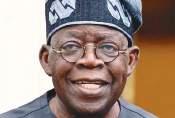
challenges, would understand the local environment and terrain, and would be committed to the safety of the community. But we are not creating vigilante commando, clapped together with almost overnight speed, and with no formal training or rules; rather we hope to establish modern, well trained, professional, well behaved and well equipped agencies, that will fully replace the often uncontrollable and
unaccountable/vigilante/hunter groups that have managed to insinuate themselves into Nigeria’s overstretched formal security system, and which, as we have seen in recent times, often fuel tribal conflicts. And we should not think that this would be an overnight process, and so the sooner we establish the ground work for the creation of state police, the better.
Challenges of Police Reform Police reform, especially decentralization and reorganisation, is a complicated, demanding, time consuming, and expensive process that has to be midwifed and birthed very carefully and delicately. In one country, things were so bad, the police force so corrupt, that the parliament, at the pleading of the president, abolished the whole police force and started all over. We do not want, surely, to replace one problem with a greater one. The challenges of dismantling, recruitment, administration, orienting, resourcing, financing and management, will meet us full in the face when the process of establishment, sustainability and viability of state police kicks in. We do not want state police services that will adopt some of the bad habits of the federal police and so training and orientation will be key. In the area of

recruitment, we must ensure that we avoid the risk of unwittingly recruiting rival gang members, cultists and other dubious characters, which could down the road result in internal conflicts or racketeering. I recall some years back when a burglar who was caught in the process of stealing a satellite antenna from the roof of a building was, when searched, found to have on his person a due and newly issued police identity card. We must avoid a situation where politically exposed people (peps) and other influential persons take over the recruitment of personnel. Indeed, in establishing state police units, we will be embarking on one of this nation’s most challenging constitutional reform efforts ever. We will have to balance local concerns with issues of national cohesion, avoid creating ‘indigenes only’, especially in states that have over time become largely multicultural and cosmopolitan and have large populations of non-indigenes (like Oyo, Lagos, Kaduna, and Abuja), and ensure that whatever systems we adopt do not threaten national unity or foster divisions.